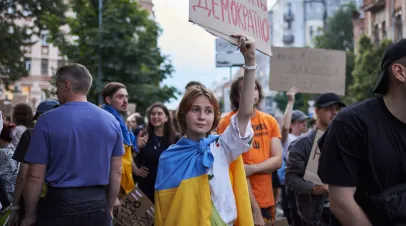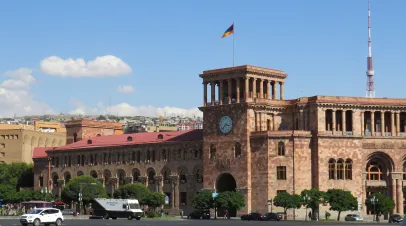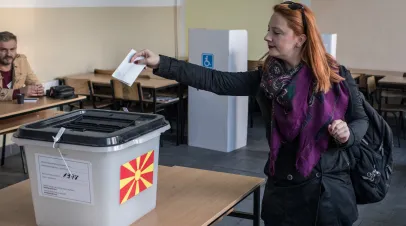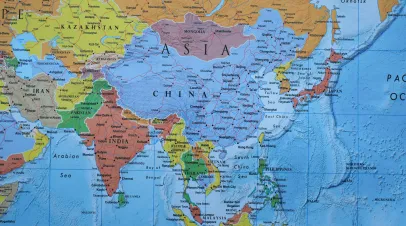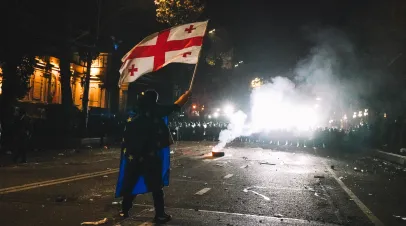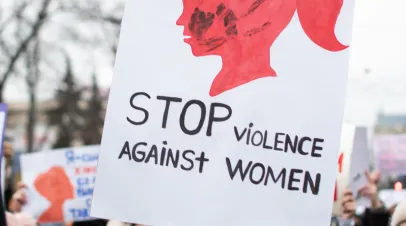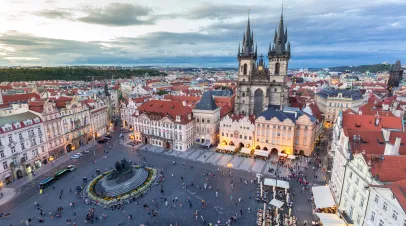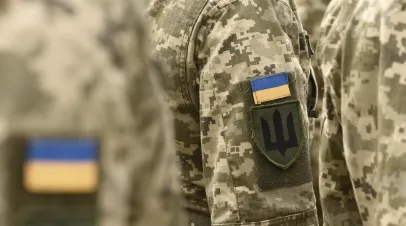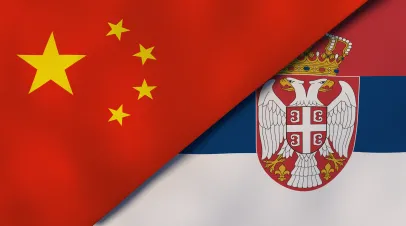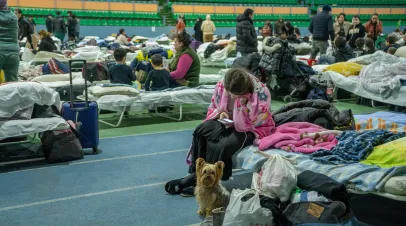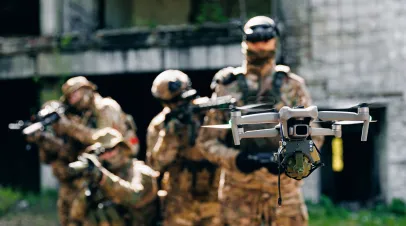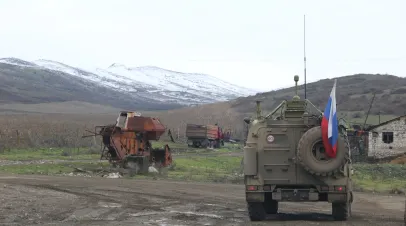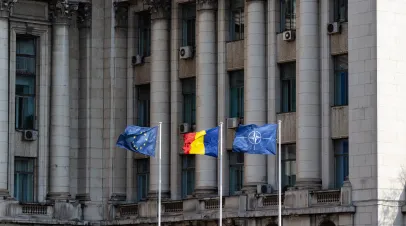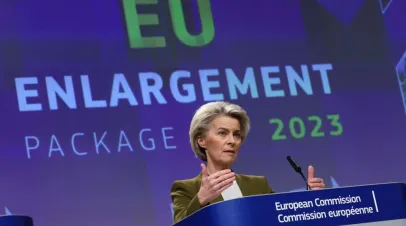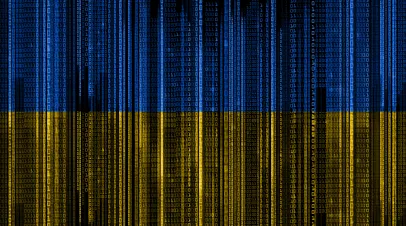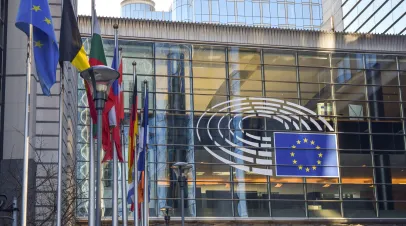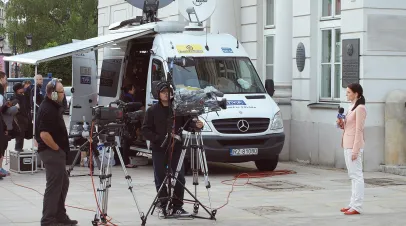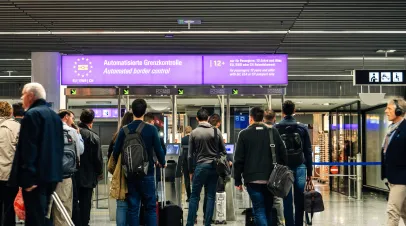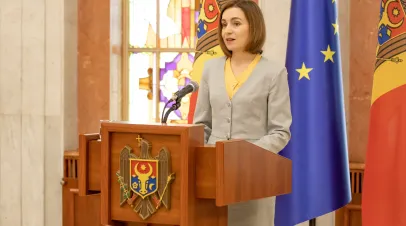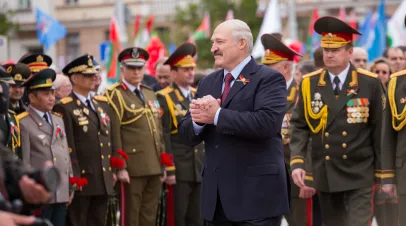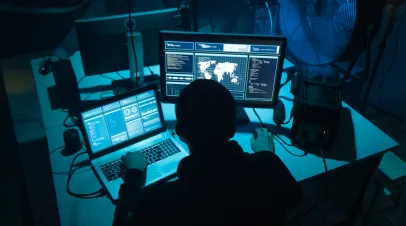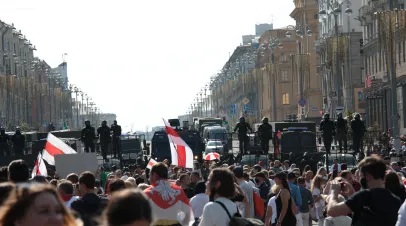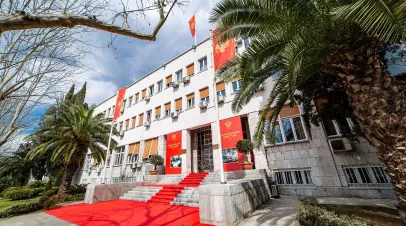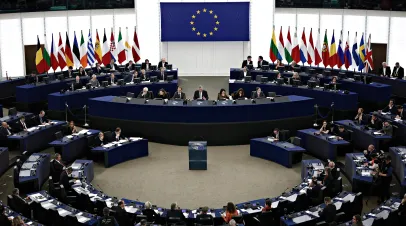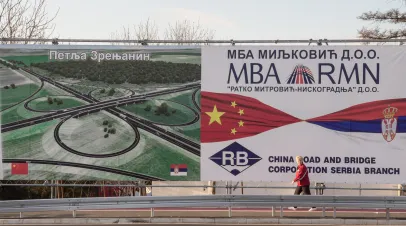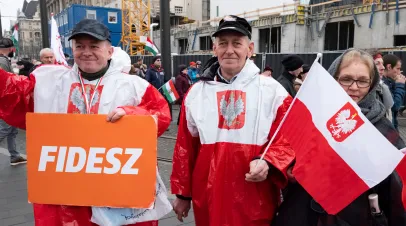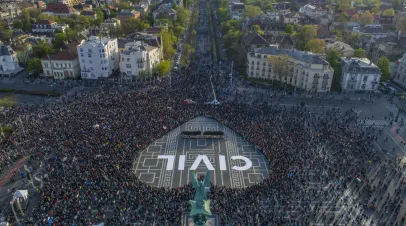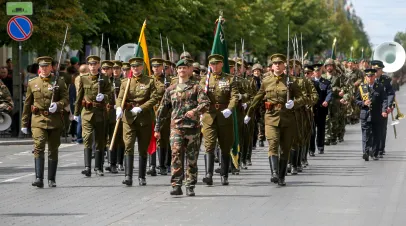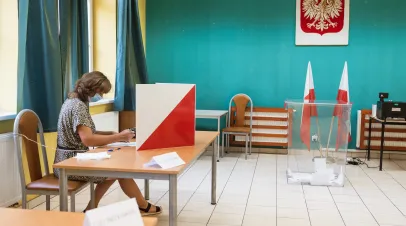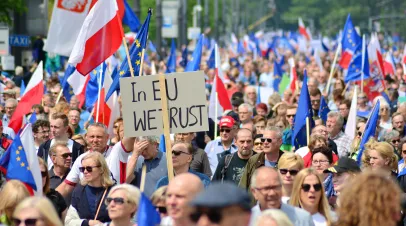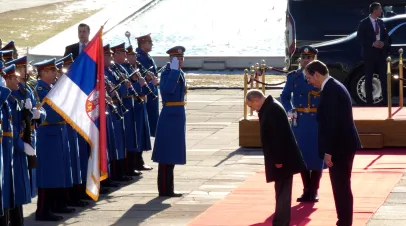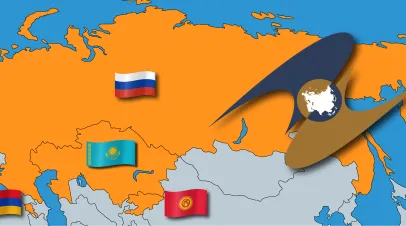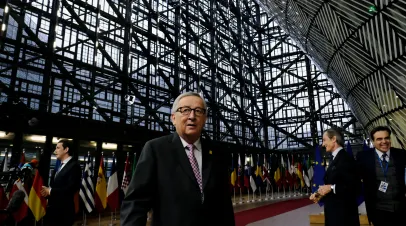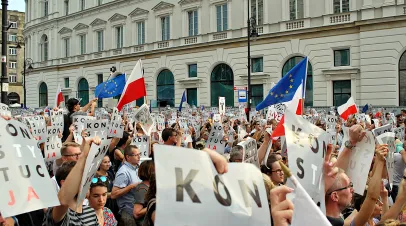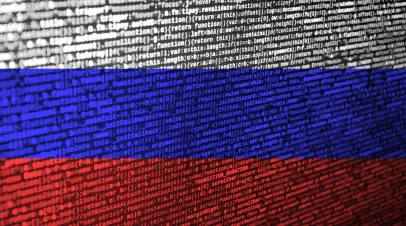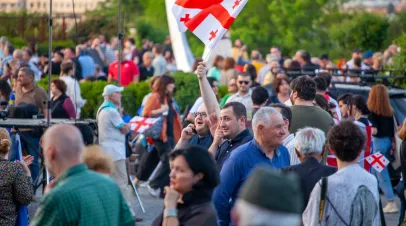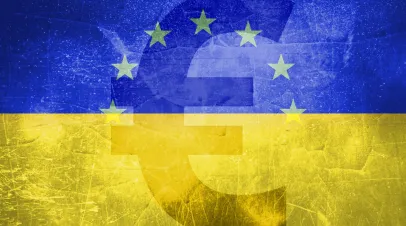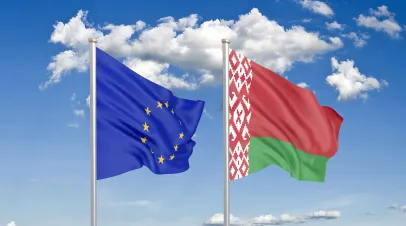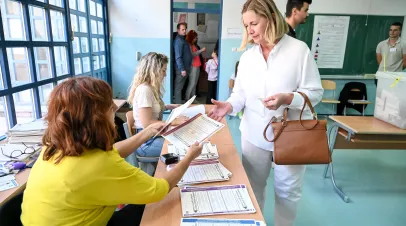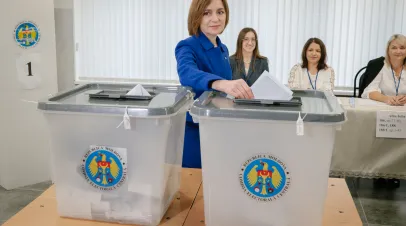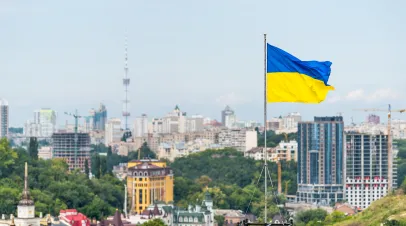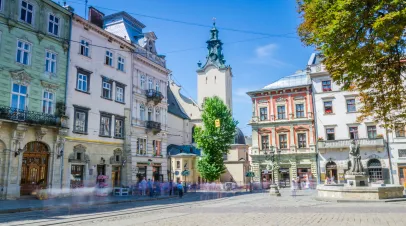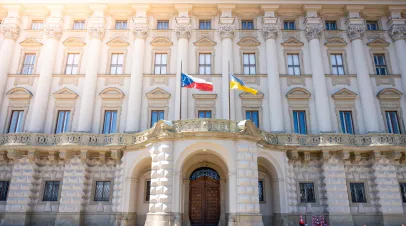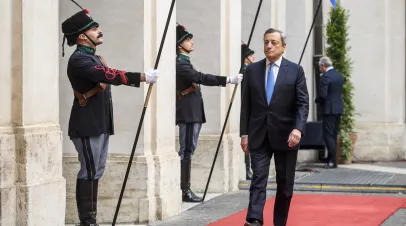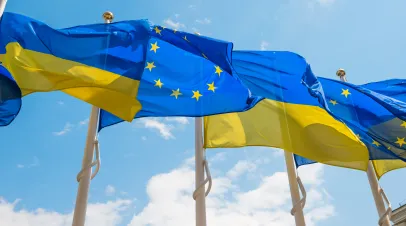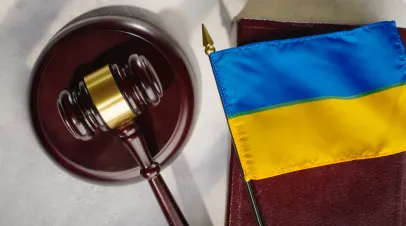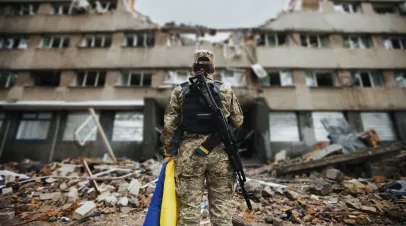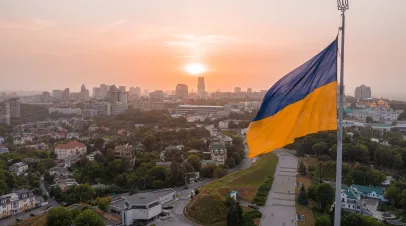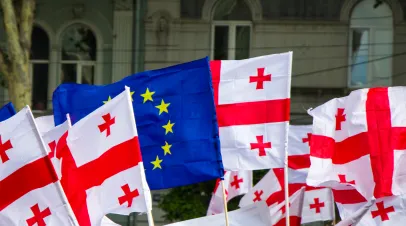ReThink.CEE Fellowship
The ReThink.CEE Fellowship is a year-long non-resident policy research fellowship, addressing next-generation policy experts, innovators, and thought leaders in Central and Eastern Europe.The ReThink.CEE Fellowship was launched by the German Marshall Fund of the United States in late 2017. As Central and Eastern Europe faces mounting challenges to democracy, security, and prosperity, the region and its Western partners urgently need fresh thinking, ideas, strategies, and policies. The ReThink.CEE Fellowship is designed to generate such policy impulses by tapping the sizeable reservoir of next-generation policy experts, innovators, and thought leaders in Central and Eastern Europe. Fellows identify and research a specific regional policy issue, which they analyze in depth, develop ideas for commensurate responses by regional and international stakeholders, and publish findings as a comprehensive policy paper. In so doing, the ReThink.CEE Fellowship supports regional expertise and amplifies its policy impact internationally.
The ReThink.CEE Fellowship is a year-long non-resident fellowship. Besides a stipend and travel and research funds, fellows are provided with professional opportunities, intellectual resources, and capacity-building to hone their analytical and policy skills, expertise, and exposure. Support includes two workshops on policy research and writing, guidance from GMF peers, cooperation with GMF offices and networks, and assistance with media exposure.
Up to a dozen fellows per year are selected on a competitive basis. Successful applicants join a growing network of ReThink.CEE fellows and alumni, and they continue their engagement with GMF and the transatlantic policy community well beyond the end of their fellowship.
Questions about the ReThink.CEE Fellowship can be directed to [email protected].
Current fellows & Alumni
Expand All2025
Alina Doroftei (Romania)
Electoral Integrity Under Pressure: Hybrid Threats, Institutional Reform, and Democratic Resilience in Moldova’s 2025 Parliamentary Elections

Alina Doroftei has extensive experience in diplomacy and international relations, primarily through her work with Romania’s Ministry of Foreign Affairs and the European External Action Service. Her expertise is in the EU’s policies toward the Black Sea region and the Eastern Partnership, with in-country experience in Georgia, Moldova, and Ukraine. She has worked extensively on conflict resolution, crisis management, security-sector reform, hybrid threats, cybersecurity, the rule of law, anti-corruption, and democratic governance. In Moldova, she has been project manager for the Crisis Management Initiative, coordinator for Romania’s bilateral assistance, and political counsellor at the EU delegation, among other roles. Throughout her career, Alina has combined strategic policy engagement with operational fieldwork in complex political environments. She holds an MSc in global security from Cranfield University and the United Kingdom’s Royal Military College of Science.
Yanina Karalevich-Kartel (Belarus)
Resilience Under Pressure: Lessons From Belarusian Media in Exile (2020–2025)

Yanina Karalevich-Kartel has ten years of experience as a journalist, editor, media manager, and journalism trainer. From 2022 to 2025, she worked as media adviser in an international implementor organization. Before that, she was the co-editor-in-chief of CityDog.by, an online Minsk city magazine that is one of the country’s most innovative and high-quality outlets, where she started as a journalist and executive editor in 2012. She is also the creator and editor of the multimedia project 90s.by, which explores the transitional period of the 1990s in Belarus through photos, text, and historical artefacts. Yanina holds a Bachelor’s degree in information and communication from the Faculty of Philosophy and Social Sciences at the Belarusian State University.
George Melashvili (Georgia)
Resilience Under Pressure: Fight for Georgia’s European Future

George Melashvili is a Georgian political scientist, author, and civil society leader specializing in democracy, governance, and European integration. As president of the Europe-Georgia Institute, he leads initiatives to strengthen civic engagement, political education, and resilience against authoritarian influence. He is the author of Korea: Success Story/Lessons for Georgia, the first academic book on South Korea in the Georgian language, and is currently working on his next book, Taiwan: Island of Freedom. He is a frequent commentator on Georgian and regional affairs in international media, and he has been recognized with fellowships and awards. George lectures on international relations and East Asian political history at Georgia’s Free University and actively contributes to international forums on democracy and security, advancing Georgia’s European future and democratic resilience across Eastern Europe and Eurasia.
Maria Repko (Ukraine)
The Economics of Embedding Ukraine’s Defense Industry Into the EU’s Defense-Industrial and Technological Base

Maria Repko is a Ukrainian economist and deputy director at the Kyiv-based Centre for Economic Strategy since 2015. She specializes in macroeconomic policies, financial-sector analysis, war economy, and EU integration. Based on her experience in investment research and modeling, her work focuses on preserving Ukraine’s economic resilience during wartime. From 2006 to 2013, she worked as an analyst at the investment company Troika Dialog Ukraine, where she was responsible for conducting company research and strategy on credit markets. Also, she worked as a director of the analytical department at Empire State Capital Partners and at the managing branch for a large group of companies, where she managed shareholders’ investments in the foreign capital markets (2014–2015). Maria holds a Master’s degree in management from the Kyiv National University of Economics and a Master’s degree in finance from the Ukrainian Institute of Stock Market Development.
Tamara Sartania (Georgia)
Election Observation in Georgia’s 2025 Local Elections

Tamara Sartania is an independent international consultant, specializing in democratic elections, civil society development, parliamentary and political party strengthening, and women’s political participation. In her recent role as a chief of party for the USAID-funded Information Integrity Program, she led the initiatives aimed at building the resilience of Georgia’s information space to disinformation and propaganda. She has previously worked as an election adviser for the OSCE’s Office for Democratic Institutions and Human Rights (ODIHR), where her portfolio included coordinating needs-assessment missions and electoral activities in nine countries. In addition, she served as a core team member for several ODIHR election-observation missions. As a deputy chief of party for the Georgia office of the National Democratic Institute (NDI), Tamara supervised initiatives to support political pluralism in the country through capacity-building at the national and regional levels. She has also worked as thematic analyst for NDI’s election-observation missions to Ethiopia, Lebanon, and Ukraine. She holds an MA in law and diplomacy from the Fletcher School, Tufts University and a Postgraduate Certificate in strategic communications (with distinction) from King’s College London.
Yuliia Shaipova (Ukraine)
Exploring Possibilities for Local-Level Participation in Ukraine’s EU Accession Process

Yuliia Shaipova is a public-policy professional specializing in European integration and foreign affairs, with over eight years of experience in analysis, project management, and leadership. She has worked across Ukraine’s parliament, government, civil society, business, and international partners. Since August 2024, she has been part of the Reform Support Team at the Ministry of Economy, where she coordinates the implementation of the Ukraine Plan under the EU’s Ukraine Facility and contributes to building the system for managing EU accession negotiations in chapters under the ministry’s mandate. In 2022–2023, with the civil society organization EasyBusiness, she supported the Government Office for European and Euro-Atlantic Integration during Ukraine’s EU membership application and the granting of candidate status. In 2021–2022, she coordinated the preparation of analytical materials for the Ukraine Recovery Conference in Lugano, leading a process that engaged over 150 experts within a multi-stakeholder framework. Yuliia has also represented Ukraine in international advocacy visits, including to Hungary and Serbia, and contributes commentary on EU integration to national media. She offers guest lectures for educational initiatives addressing diverse stakeholders. She holds law degrees from Odesa Law Academy and Kyiv-Mohyla Academy, and a Master’s in diplomatic studies from the University of Oxford.
Narek Sukiasyan (Armenia)
Que Vadis Armenia? Ahead of Domestic and Foreign Turbulences
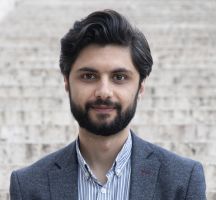
Narek Sukiasyan is a researcher at the Center for Culture and Civilization Studies at the Institute of Armenian Studies at Yerevan State University and an adjunct lecturer at the American University of Armenia. He has been a senior policy officer and project manager at Friedrich-Ebert-Stiftung, South Caucasus since 2020. He specializes in the foreign and security policy of Armenia, Armenian-Russian affairs, and democratization in Armenia. He holds a PhD in international relations and political science and an MA in regional politics from Yerevan State University as well as a BA in international relations and European studies from Babeș-Bolyai University in Romania.
2024
Dardan Abazi, Kosovo
Utilizing EU Financial Instruments for an Accelerated Energy Transition in the Western Balkans
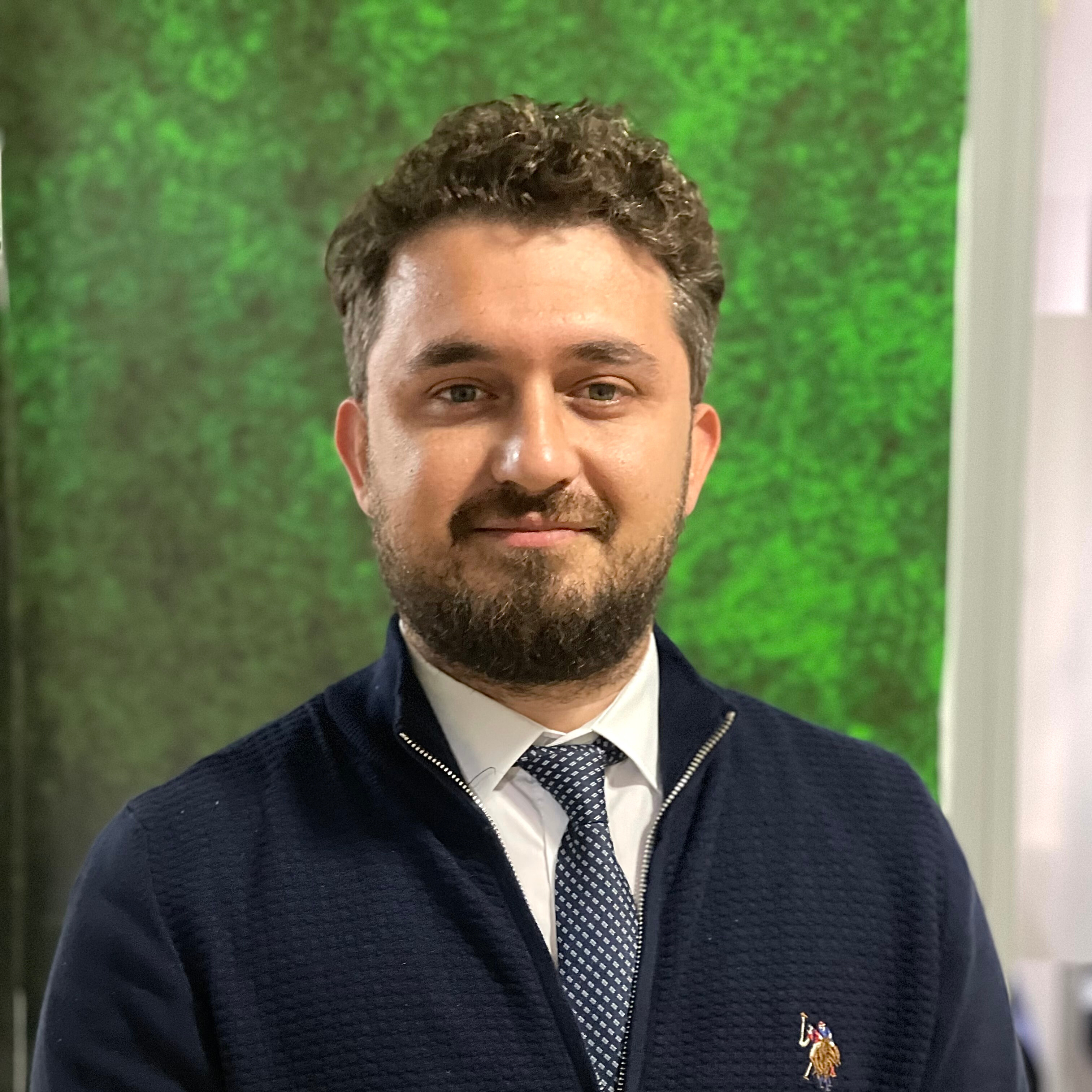
Dardan Abazi is head of research and program manager at the Institute for Development Policy (INDEP). With a strong foundation in political science, European integration, and energy policy, he has a wealth of experience in public policy and project management, particularly in the fields of legislation and policy monitoring within the energy sector, energy transition, climate policy, and UN Sustainable Development Goals (SDGs). He has made substantial contributions to the drafting of the Voluntary Local Reviews for the SDGs. He has also worked in parliamentary research and advocacy, with a specific focus on policy analysis in the energy sector, complemented by active involvement in various modeling exercises. He contributed to Kosovo’s National Energy and Climate Plan working group, concentrating on renewable energy. He also has extensive experience in democratic governance, European integration, and green democracy. He has also held a leadership role in the Education Department at the Municipality of Vushtrri.
Yana Brovdiy, Ukraine
Strengthening Collaboration Between Local Governments and Civil Society for an Efficient Postwar Recovery of Ukraine
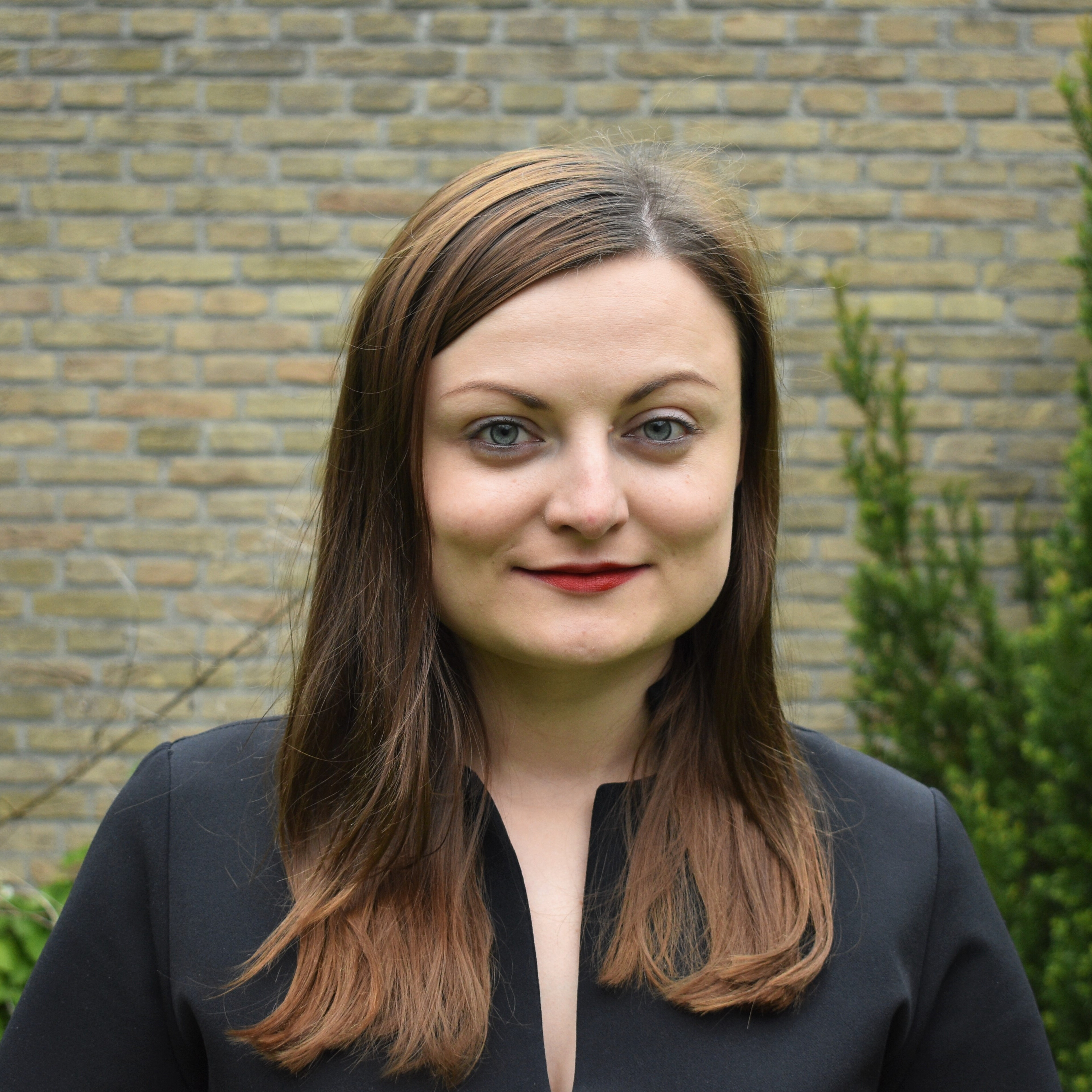
Yana Brovdiy works on civil society and independent media in Ukraine at the European Endowment for Democracy (EED). With her diverse background spanning international organizations, civil society, and academia, her work is centered on advancing democracy, fostering effective local governance, and promoting international cooperation. Prior to joining the EED, she led a project at the Council of European Municipalities and Regions aimed at empowering municipalities in Ukraine and the European Union through international partnerships. Her background in local governance includes an early-career traineeship at the European Committee of the Regions. She gained academic experience at the College of Europe in the MA in transatlantic affairs and the European general studies programs, where her research interests encompassed topics such as transatlantic relations and the EU’s policies on disinformation and other foreign policy matters. She holds MA degrees from the College of Europe and Lund University. She spent a year in the United States within the Future Leaders Exchange program of the US Department of State.
Christian Alexandru Damian, Romania
What Role for Civil Society Organizations in Advancing the EU Integration of Georgia, Moldova, and Ukraine
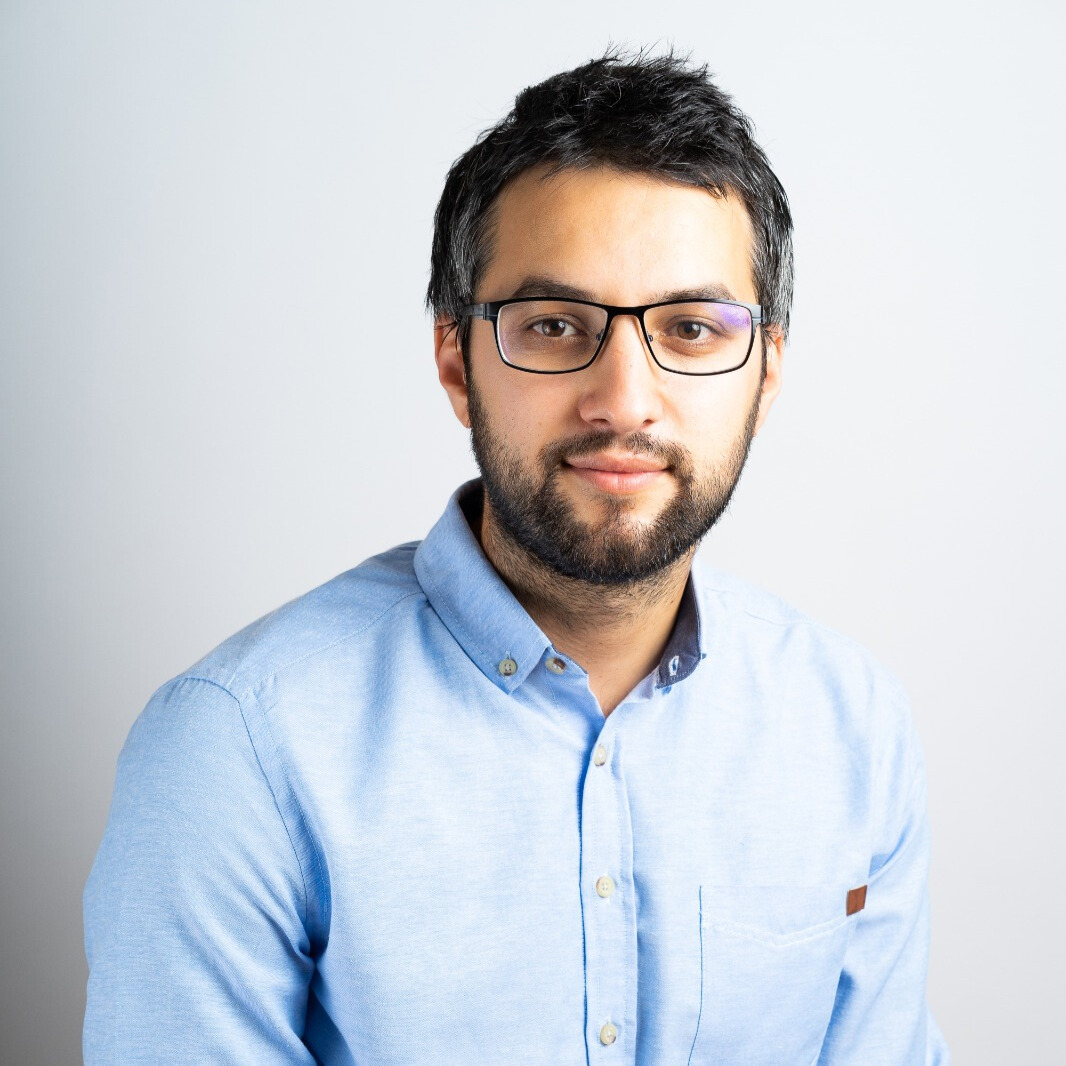
Christian Alexandru Damian is program director at the Romanian Center for European Policies (CRPE) with over ten years’ experience in the nongovernmental sector. He has considerable experience in good governance, public participation, and civic engagement, and he often collaborates with civil society, public authorities, and civic groups in fostering collaborative approaches on their part and building mutual trust. His interest is in strengthening citizens’ participation in public decisions and data-driven public policies. He also works as a consultant and is part of projects initiated by various international organizations such as the World Bank and the European Commission Joint Research Centre. His work focuses mainly on Romania, Moldova, and the other Eastern Partnership countries, and he usually writes on developments in Moldova. He holds a BA degree in political science from the University of Bucharest and an MA degree in political science from the Free University of Brussels.
Angel Dimitrievski, North Macedonia
The Rise of the Anti-Gender Movement as a Threat to Democracy in the Western Balkans
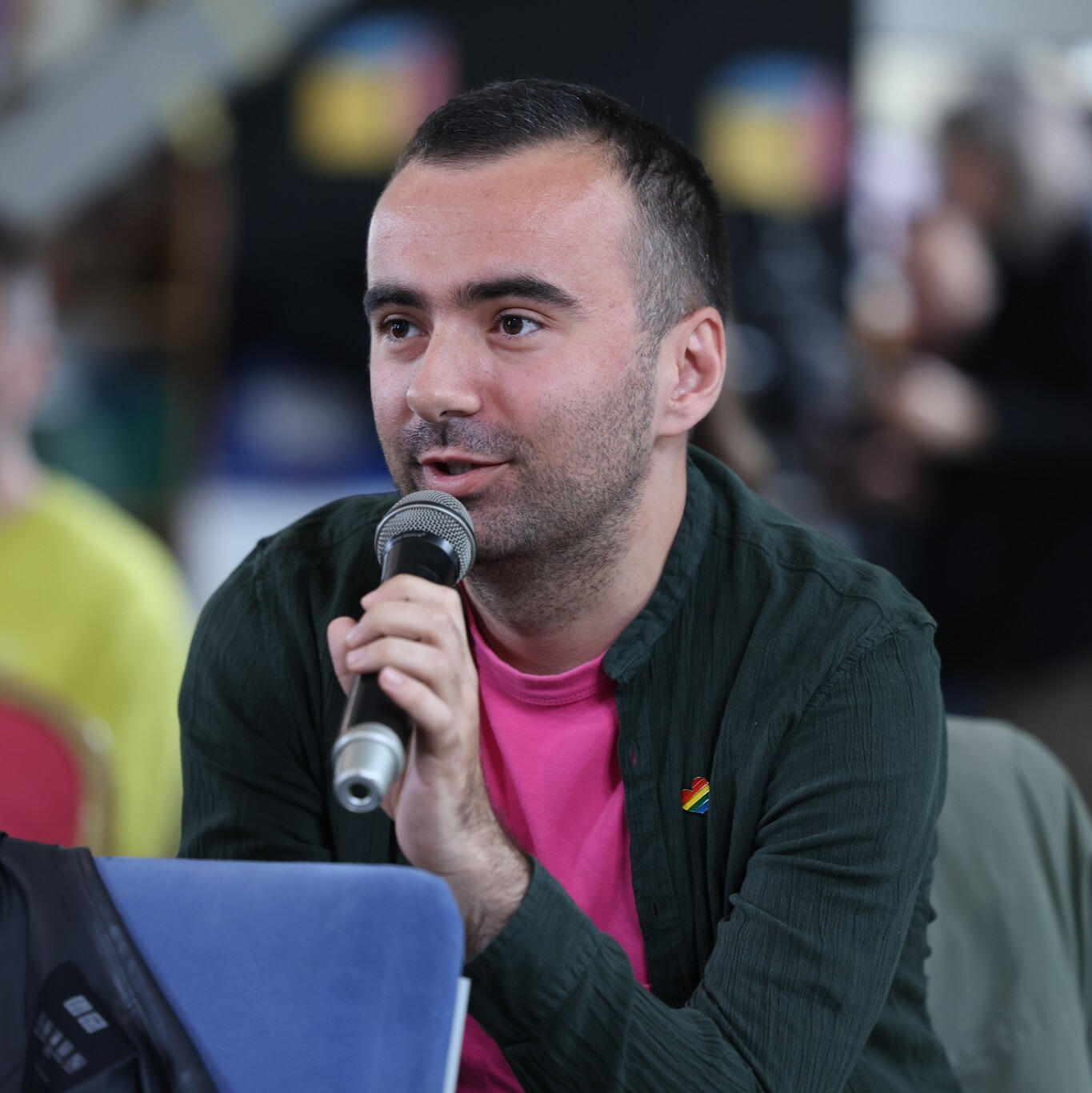
Angel Dimitrievski is the executive director of the Association for Educational Development Ekvalis in North Macedonia. He holds an MA degree in media education from Tampere University in Finland. He is an activist for LGBTQ+ rights in North Macedonia, where he is involved in networks and umbrella organizations. He is part of the organizing committee of the Skopje Pride Parade, the country’s biggest event for affirmative representation of LGBTQ+ people. In 2022, he completed a fellowship with the US State Department and IREX during which he worked with a local organization in Miami, Florida that focused on the prevention of LGBTQ+ suicide among young people. His essays on disabled bodies, chronic illness, and queer bodies have been featured in some of the most renowned feminist media platforms in North Macedonia and published in several books.
Dominik Istrate, Hungary
Ukraine’s Recovery and Reconstruction From a Central European Perspective: Shared Opportunities, Benefits, and Challenges
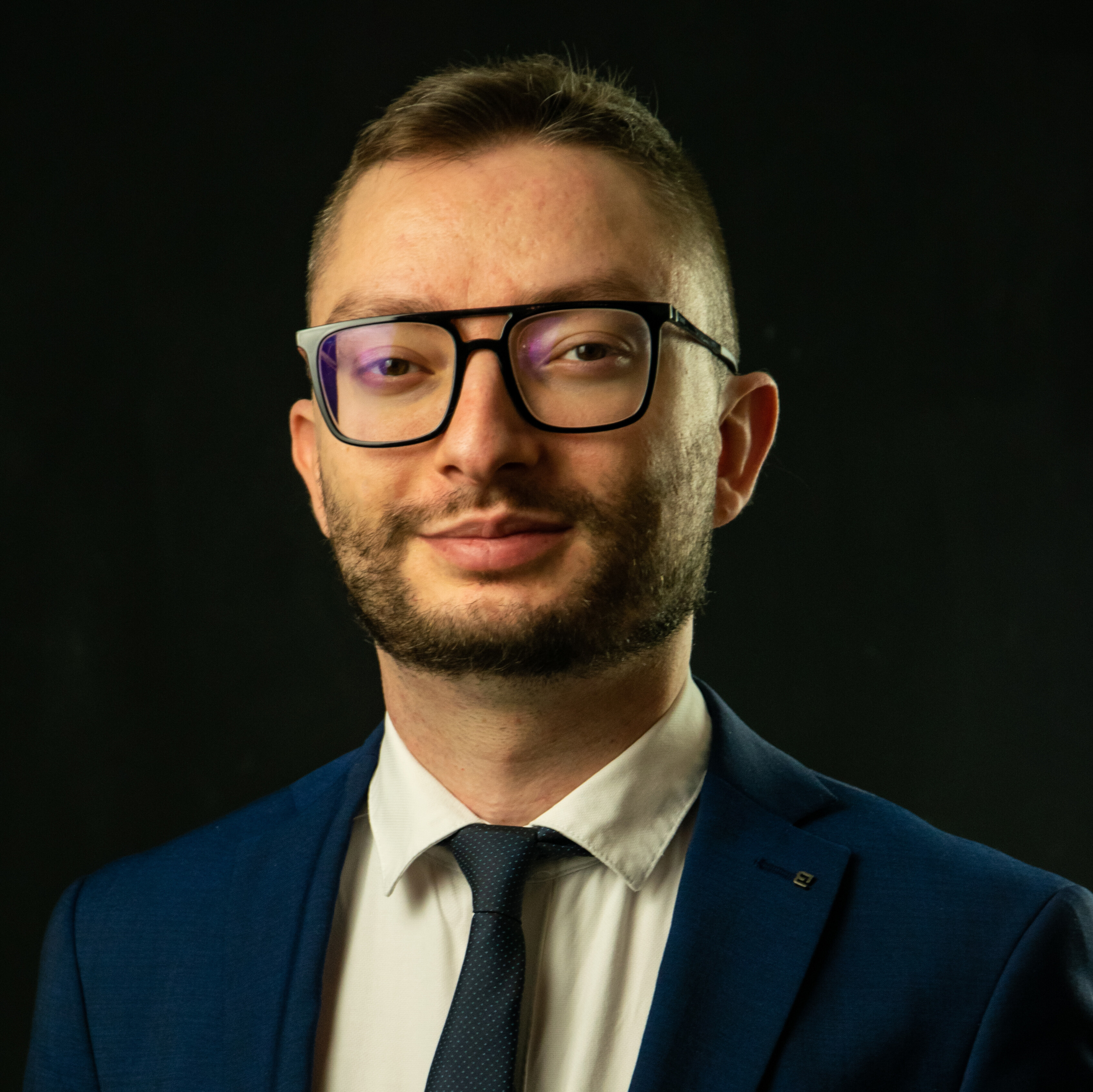
Dominik Istrate is a foreign policy and political risk analyst focusing on Central and Eastern Europe. He is the research director of Aretera, an international public affairs consultancy operating across the region as well as Türkiye, Central Asia, and the South Caucasus. In this role, he is responsible for coordinating policy research and supervising the production of Aretera’s analytical contents and strategic materials. He worked earlier as a foreign policy analyst at Political Capital, a Budapest-based think tank, where he specialized in Eastern Europe, Russia, and Hungary’s foreign relations. In 2021, he was a James S. Denton Transatlantic Fellow with the Center for European Policy Analysis in Washington. Previously, he worked as a Hungary analyst in various capacities and as a reporter for Emerging Europe, covering Hungary and the Eastern Partnership countries. He has authored several publications about Russia-CEE relations, and his articles and comments have regularly appeared in Hungarian and international media outlets. He is an international relations graduate of the Corvinus University of Budapest. He founded the Central Europe Association, a Budapest-based youth nongovernmental organization, and chairs its Advisory Board.
Aleksandar Ivković, Serbia
Organized Voter Migrations: A Threat for election integrity in the Western Balkans
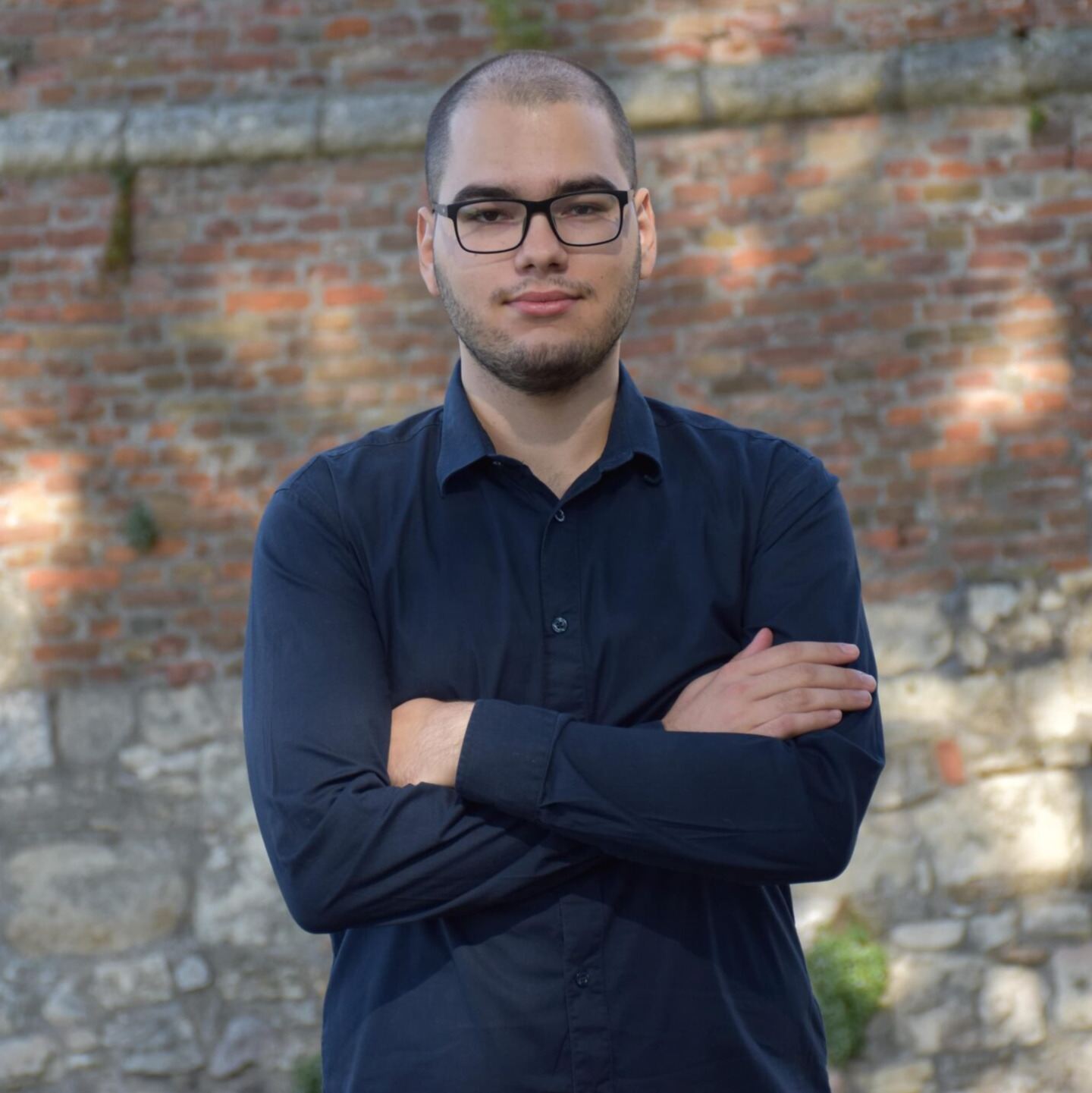
Aleksandar Ivković holds a BA degree in international affairs and an MA degree in political science from the Central European University, where his thesis topic was “International Constraints on Democratic Backsliding”. He has worked as a researcher for several Serbian civil society organizations, primarily the Belgrade-based Centre for Contemporary Politics, with a focus on democracy, European integration, foreign policy, and the media. He is also news editor of the specialized media portals European Western Balkans and Serbia Elects. He was a Schuman trainee at the European Parliament in Brussels in 2020/2021. He is a co-author of the annual Alternative Report on the Position and the Needs of Youth in Serbia, released by the National Youth Council of Serbia—KOMS since 2020.
Galyna Kotliuk, Ukraine
Addressing Gender-Based Violence as Part of Ukraine’s Postwar Recovery

Galyna Kotliuk is a feminist human rights defender and activist. She currently serves as the Gender Democracy/Women Rights/LGBT-Rights program coordinator at the Heinrich Böll Foundation office in Kyiv, Ukraine. In this capacity, she focuses on advocating and promoting a gender-sensitive and gender-responsive recovery for Ukraine. She is also a co-editor of Gender in Detail, the most prominent expert resource on gender equality in Ukraine. She holds MA degrees in English philology from Lesya Ukrainka Volyn National University and in culture studies from the University of Regensburg.
Zuzana Krulichova, Czechia
Sino-European Relations: What Agency for Central Europe?
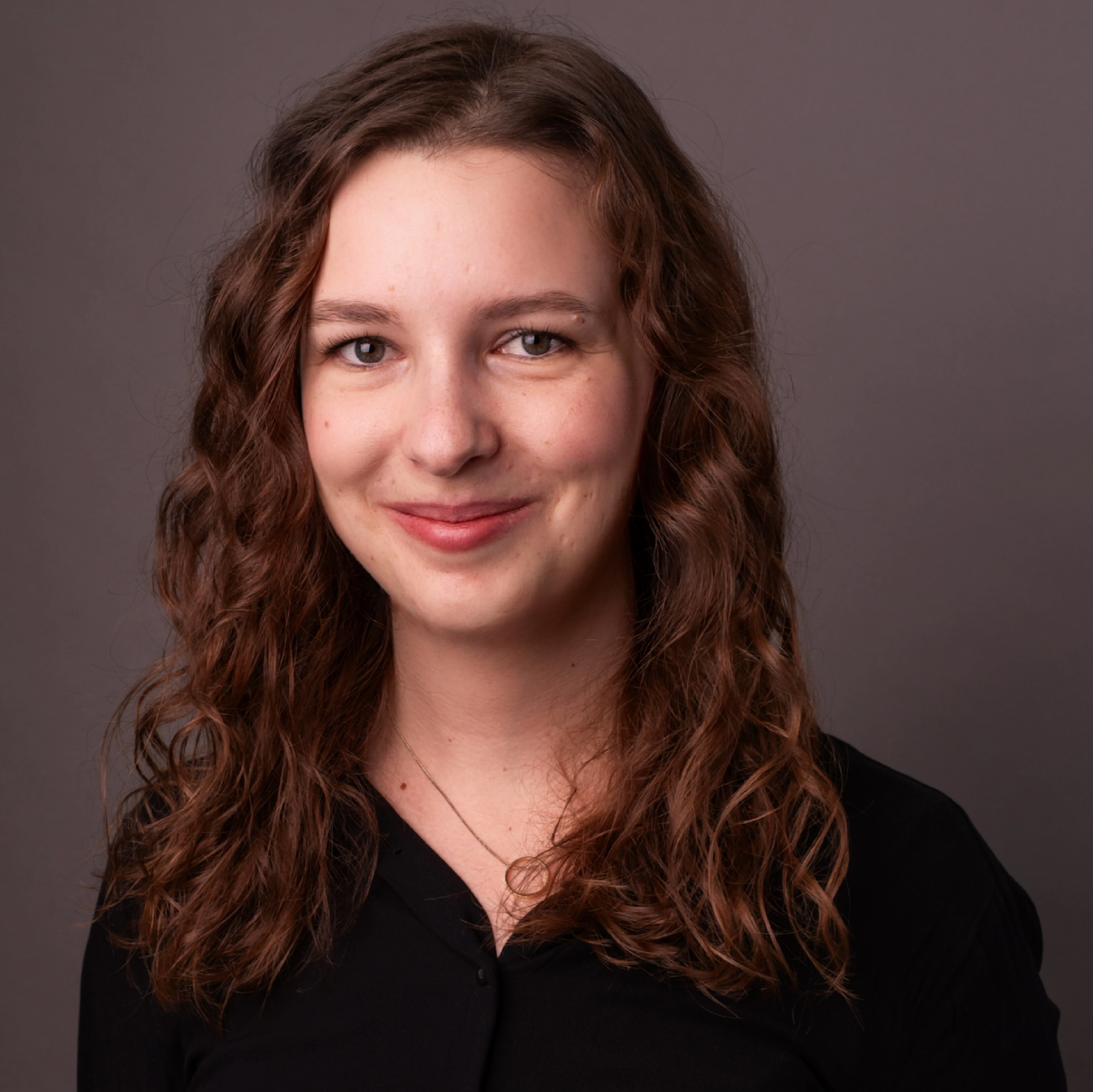
Zuzana Krulichova is a doctoral researcher at Charles University and a research fellow at EUROPEUM Institute for European Policy in Prague. Her research interests are in EU foreign policy and the role of the member states in its development, relations between the EU and China, the securitization of policy areas, such as economic cooperation or research, and non-coercive influence. Her doctoral research examines the narratives of EU member states about China and the ways in which these have become more securitized. She is also interested in education policies. She holds an MA degree in international relations from Leiden University and a BA degree in area studies from Charles University. She has also studied at University College London and been a visiting researcher at the National Chengchi University in Taipei and the University of Krakow. Before starting her doctoral research, she worked as a project manager at People in Need, a Czech nongovernmental organization, and she has been involved in several Czech civil society organizations and think tanks.
Lev Lvovskiy, Belarus
High-Skilled Exiles: Expectations and Strategies
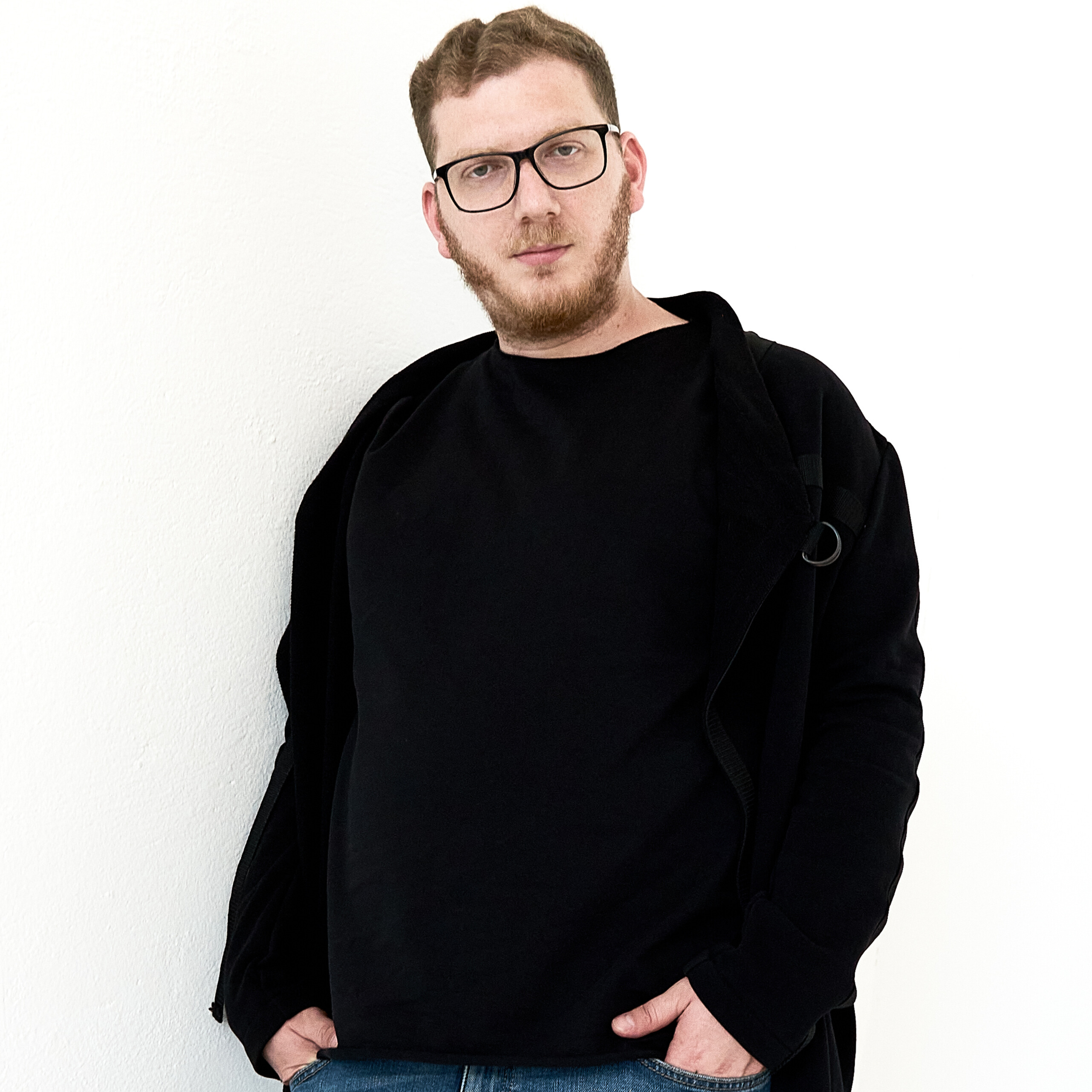
Lev Lvovskiy is a senior research fellow and an academic director at the Belarusian Economic Research and Outreach Center BEROC. He holds a PhD in economics from the University of Iowa, where his research was at the intersection between demographics and economics. His research focuses on macroeconomics, labor economics, and gender economics, and he frequently covers topics of economics and demographics in Belarusian and international media.
Anastasia Mgaloblishvili, Georgia
In the Shadow of Illiberalism: EU Democracy Promotion in Candidate Countries
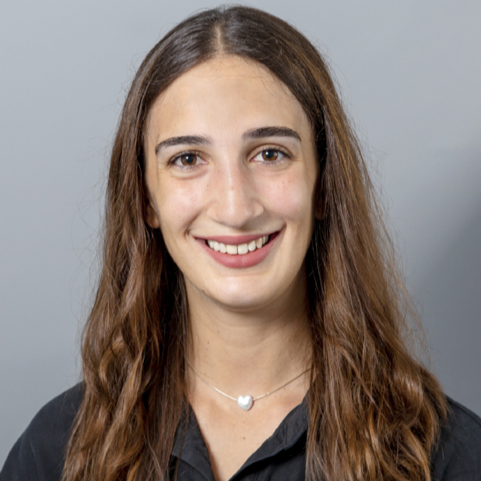
Anastasia Mgaloblishvili is a doctoral researcher at the Cluster of Excellence “Contestations of the Liberal Script” (SCRIPTS) program at the Free University of Berlin, which analyzes different perspectives on why and how the liberal order has fallen into crisis. Her research focuses on how the liberal crises in some EU candidate countries can be explained by ruling elites’ abuse and instrumentalization of EU democracy promotion. More specifically, she researches how the EU’s values, norms, and conditionality can be instrumentalized by illiberal actors. She has worked in different civil society organizations, political movements, and media platforms in Georgia during the recent turbulent years for the country’s democracy, through which she has gained insight and experience on how illiberal regimes operate. She has published policy briefs and op-eds for the likes of New Eastern Europe, Visegrad Insight, the Institute for War and Peace Reporting, and the Georgian Institute of Politics. She holds an MA degree from the College of Europe. She has also had internships at the German Marshall Fund’s Warsaw office and at the International Center for Defense and Security in Estonia.
Ema Džejna Smolo-Zukan, Bosnia and Herzegovina
Toward a Democratic Political Culture: Advancing Civic Education in the Western Balkans

Ema Džejna Smolo-Zukan is a communication and public relations professional based in Sarajevo, Bosnia and Herzegovina, where she is regional communications coordinator for the Friedrich-Ebert-Stiftung regional project Dialogue Southeast Europe. She holds BA and MA degrees from the University of Sarajevo, she was twice designated as the best student of the Faculty of Political Sciences. Her MA thesis is on the personalization of politics and its effects on autocratization and democratization in Croatia, Montenegro, and Serbia. She strives to contribute to research work in the Western Balkans and beyond in democracy, political culture, gender equality, and foreign policy. She has published several scientific and review articles for international organizations and academic institutions. She has participated in several projects related to the region, including research mentorship for Humanity in Action Bosnia and Herzegovina EDVACACY Project, research assistance on post-conflict societies with Harvard University’s Melani Cammett, and public relations for the first Sarajevo Security Conference in 2023.
Anna Vindics, Hungary
A Voice of Reason in the Age of Populism: Young Liberal Parties in Central Europe
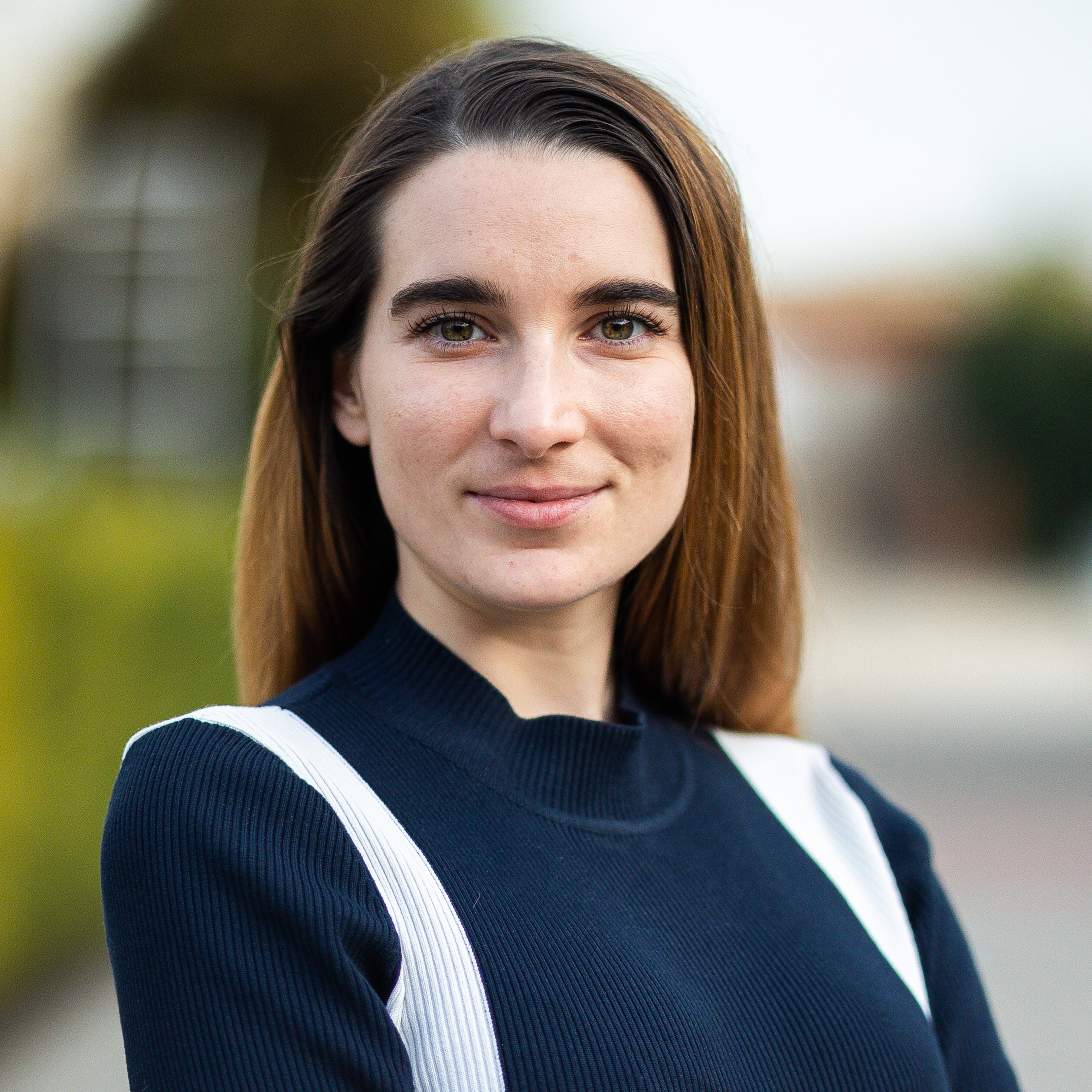
Anna Vindicsis the director of the Public Policy Department of Momentum, a political party in Hungary, where she oversees work related to public policies and the development of policy manifestos. She previously worked at the Organization for Economic Co-operation and Development in Paris as an economist and policy analyst, specializing in economic, employment, and social affairs. In this capacity she co-authored various publications and provided policy advice to member countries, including on how to improve Finland’s adult education system and on how to prevent further shrinking of Germany’s middle class. She also gained insight into implementing social policy programs while volunteering in Paris and Ghana. She holds an MA degree in international social and public policy from the London School of Economics, where she received the Titmuss Prize for outstanding performance, and one in economics from the Corvinus University of Budapest. She is committed to improving social justice, mitigating inequalities, and enhancing the well-being of individuals through evidence-based public policies.
2023
Harun Išerić, Bosnia and Herzegovina
Combating online violence and hate narrative against female journalists in the Western Balkans
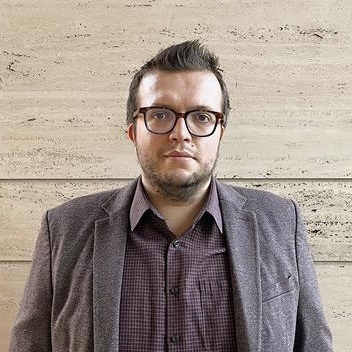
Harun Išerić is a senior teaching and research assistant at the University of Sarajevo’s Faculty of Law. He holds Bachelor’s and Master’s degrees from and is currently enrolled in the PhD program in administrative law and procedure at the University of Sarajevo. He was a visiting fellow at the University of Graz and Saarland University. From 2018 to 2021, he served as the director of the Legal Clinic in International and European Human Rights Law. The clinic was established under his supervision as president of the European Law Students’ Association Sarajevo and was a pioneering venture that stood as a role model for other universities in Bosnia and Herzegovina.
In 2016, Harun completed the Humanity in Action fellowship, and in 2023 he was granted the European Parliament’s Sakharov Fellowship for human rights defenders. He collaborates with international and nongovernmental organizations in Bosnia and Herzegovina, including the OSCE Mission, the Council of Europe, the National Democratic Institute, Civil Rights Defenders, the Initiative for Monitoring European Integration, the Konrad Adenauer Stiftung, BH Journalists, and the Center for Media Law.
In January 2023, Harun was appointed as a member of the Constitutional Affairs Council of the Bosnia and Herzegovina Presidency. He is also a member of the Complaints Commission of the Press and Online Media Council. He was a member of the OSCE Youth Advisory Group in 2014–2015 and served as the Bosnia and Herzegovina Youth Delegate to the Council of Europe Congress of Local and Regional Authorities in 2017.
His research focuses on constitutional and human rights law, with an emphasis on the constitutional judiciary and constitutional courts, comparative administrative law and procedure, human rights law, and the media.
Michal Hrubý, Czechia
Rethinking Industrial Policy for Central and Eastern Europe
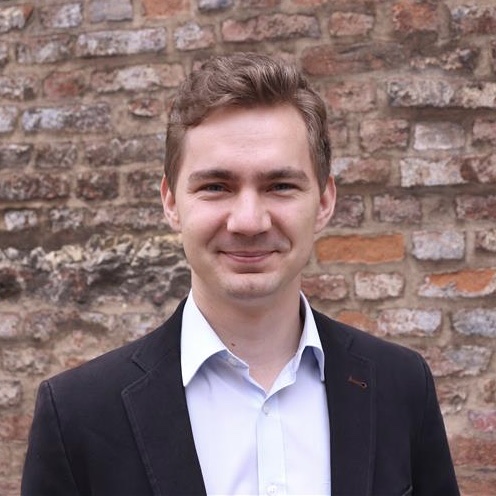
Michal is an economist and PhD candidate in international economic relations at Prague University of Economics and Business and a scientific assistant at Škoda Auto University, focusing on economic transitions and industrial transformation. His PhD research explores the impact of regulation on the automotive industry and assesses new industrial policies. He specializes in the automotive and heavy industries, having started his career as a research fellow and economist for European and international think tanks, including EUROPEUM Institute for European Policy and ISFC International Sustainable Finance Centre, where his primary responsibilities were research and advisory work on topics including electromobility, heavy industry’s decarbonization, energy markets, and carbon capture and storage.
Michal holds a Master’s degree in economics from Škoda Auto University. He is a frequent commentator for media outlets and delivers lectures and presentations for various EU institutions, banks, and think tanks, cooperating with the European Commission through Team Europe Direct.
Irakli Sirbiladze,Georgia
Understanding Russia’s power in the South Caucasus amid the war in Ukraine
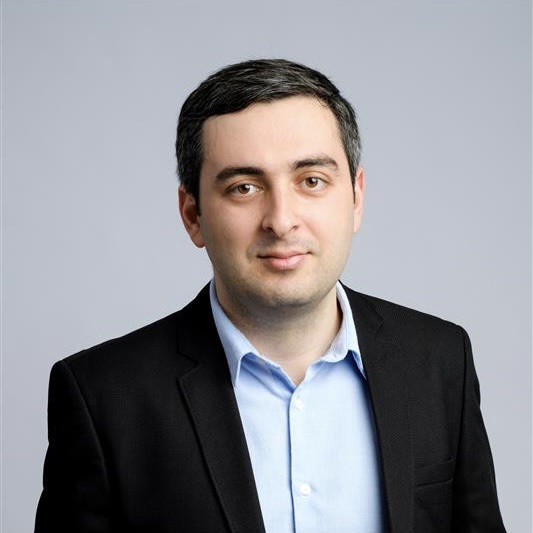
Irakli Sirbiladze is an affiliated researcher at the PMC Research Center in Georgia. He is also an invited lecturer at the Ivane Javakhishvili Tbilisi State University and he has led modules on international politics at the Diplomatic Institute of the Ministry of Foreign Affairs of Georgia. Previously, he was a Think Visegrad Fellow at the Center for Euro-Atlantic Integration and Democracy in Hungary and a policy analyst at the Georgian Institute of Politics. In addition, over the past years, he has worked for international organizations including the OSCE/ODIHR, the Council of Europe, the National Democratic Institute and the Eastern European Centre for Multiparty Democracy on election observation, political party support, democracy education, and citizen participation. Irakli holds an MA degree in international relations from Queen Mary University of London. He has published on Russia, Black Sea geopolitics, and Georgia’s foreign policy, including Georgia’s relations with the EU, NATO, Russia, and China. His wider research interests include hegemonic studies and small states’ responses to regional hegemonic powers.
Lilla Eredics, Hungary
Responses to the situation of Roma refugees fleeing from Ukraine
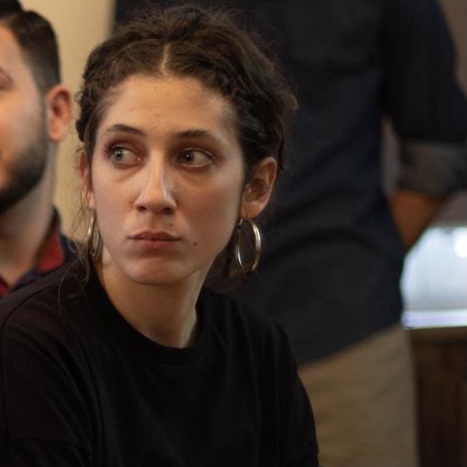
Lilla Eredics graduated in 2022 from the Central European University with an MA degree in sociology and social anthropology. Her work focuses on the social realities of marginalized communities along with race, gender, and class. She wrote her MA thesis on the oral histories of Roma women with a focus on paid and unpaid reproductive work. Since 2021, she has been editor of Fordulat, the Hungarian journal of critical social theory. She is one of the chief editors of a Roma-focused issue to be published in the spring of 2024. She is an alumna of the College of Social Theory and an active member of the Working Group for Public Sociology “Helyzet.” In the summer of 2021, she became involved as a researcher in the project of Romaversitas on the inclusion of Roma refugee families. Since January 2023, she is coordinating the project.
Arta Haxhixhemajli, Kosovo
Digital Silk Road: China’s foreign policy and digital security challenges in the Western Balkans
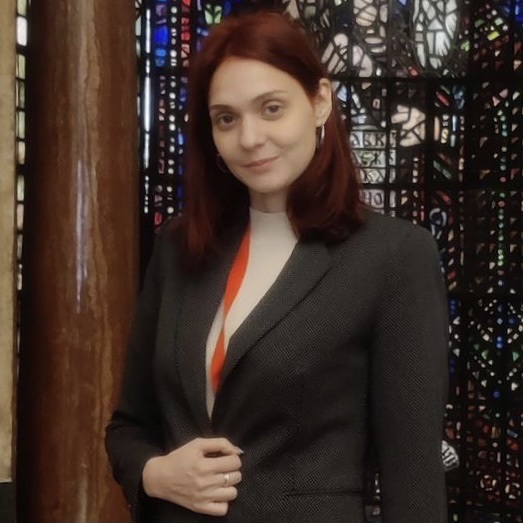
Arta Haxhixhemajli is project manager for the Western Balkans at the Center for Security and Analysis Prevention in Prague. She holds a Bachelor’s degree in international relations from the University of Warsaw, and a Master’s degree in world politics and international relations from the University of Pavia. Her work focuses on international security, security dilemmas, conflict resolution, cybersecurity, nuclear-weapons proliferation, and political context. She is responsible for editing, writing, and reviewing articles and implementing workshops, concept proposals, and conferences for related different topics. She also published several articles related to cybersecurity and states, ethical hacking, migration and human security, information security management system standards, the trade and foreign policy of the Western Balkans, the Wagner group, China’s relation with Central and Eastern European countries, and security issues in the Western Balkans. Her native language is Albanian, and she is fluent in French and English.
Jan Boguslawski, Poland
Eastern Europe goes global: The supply chain crisis and regional growth regimes
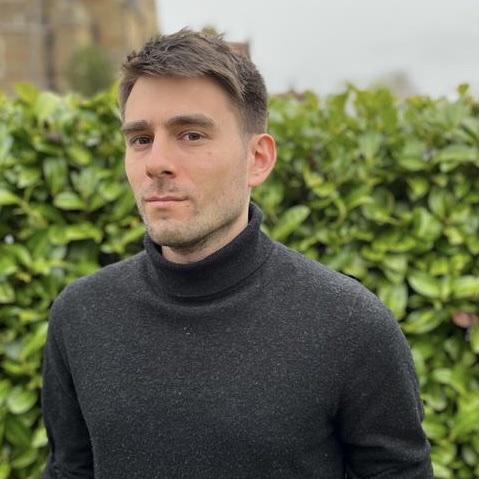
Jan Boguslawski is a PhD researcher at the MaxPo Centre and Centre d'Études Européennes at Sciences Po Paris. A political economist, he is primarily interested in social policy and the transformations of economic models in Europe. In his dissertation, he explores the fluctuations in welfare-state policymaking in Central-Eastern Europe in reference to private financial markets. He researches the financialization and definancialization of the local welfare mix through the lens of housing and pension policymaking.
Jan also engages in research pertaining to skill formation systems, fiscal frameworks, and social investment policies. He has taught at the Paris and Reims campuses of Sciences Po, including a recent class on the Political Economy of Central and Eastern Europe. In 2022, he was a visiting researcher at the Max Planck Institute for the Study of Societies in Cologne. As of the spring of 2023, he is a visiting researcher at the Department of Social Policy and Intervention at University of Oxford.
Prior to beginning his doctoral studies, Jan obtained degrees from University College London and the London School of Economics, and he also spent several years working as a public policy consultant.
Michał Wyrębkowski, Poland
When companies self-sanction: corporate responses to the Russian invasion of Ukraine in Central and Eastern Europe
Michał Wyrębkowski is a research fellow at Yale Chief Executive Leadership Institute (CELI). He is a BSc degree candidate in economics at the Wharton School of the University of Pennsylvania. He has been curating the Yale list of Western companies withdrawing from Russia. He is also a Russia project lead at Yale CELI, directing the effort on the assessment of sanction effectiveness and Russian supply chain redirection. At Wharton, he has been involved with the Kleinman Center for Energy Policy, the ESG Initiative, and Penn Climate Ventures working on projects related to European energy transition, financial inclusion, and green project finance. He holds the Penn World, Joseph Wharton and Rafal Brzoska Foundation scholarships, and is a member of the Open Eyes Economy Summit Program Council. His key research interests include energy geopolitics, sanctions, and sustainable development.
Ionela Maria Ciolan, Romania
Building a Black Sea security strategy against the backdrop of a new Iron Curtain
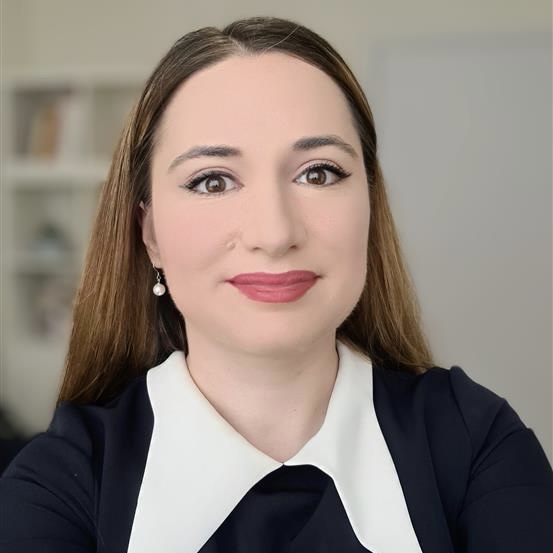
Ionela Maria Ciolan is a Brussels-based foreign policy and security researcher and the director of the Transatlantic Alumni Network. Previously, she was a research fellow at the European Policy Centre (EPC) in Brussels and a James S. Denton Transatlantic Fellow at Center for European Policy Analysis (CEPA) in Washington. She gained extensive international policy expertise as a Fulbright Scholar at the University of California-Berkeley as well as through her work at the European Parliament, the Centre for EU-Russia Studies at the University of Tartu, and the National University of Political Studies and Public Administration in Romania. She has a PhD on the Eastern Partnership, multilateralism, and power politics, with a focus on Georgia, Moldova, and Ukraine. Her policy research has been published by CEPA, the EPC, GLOBSEC, and the European Defence Agency. Her work has been cited in several international media outlets.
Ionela is an alumna of the Manfred Wörner Seminar of the Armed Forces of the Federal Republic of Germany (2022), the GLOBSEC Young Leaders Forum (2022), and the OSCE and UN Office for Disarmament Affairs Scholarship for Peace and Security (2019). She has been New Security Leader of the Warsaw Security Forum (2018) and a Professional Fellow of the US Department of State (2015).
Simona Torotcoi, Romania
Ethnic political parties in Central and Eastern Europe: The struggles of Roma political participation
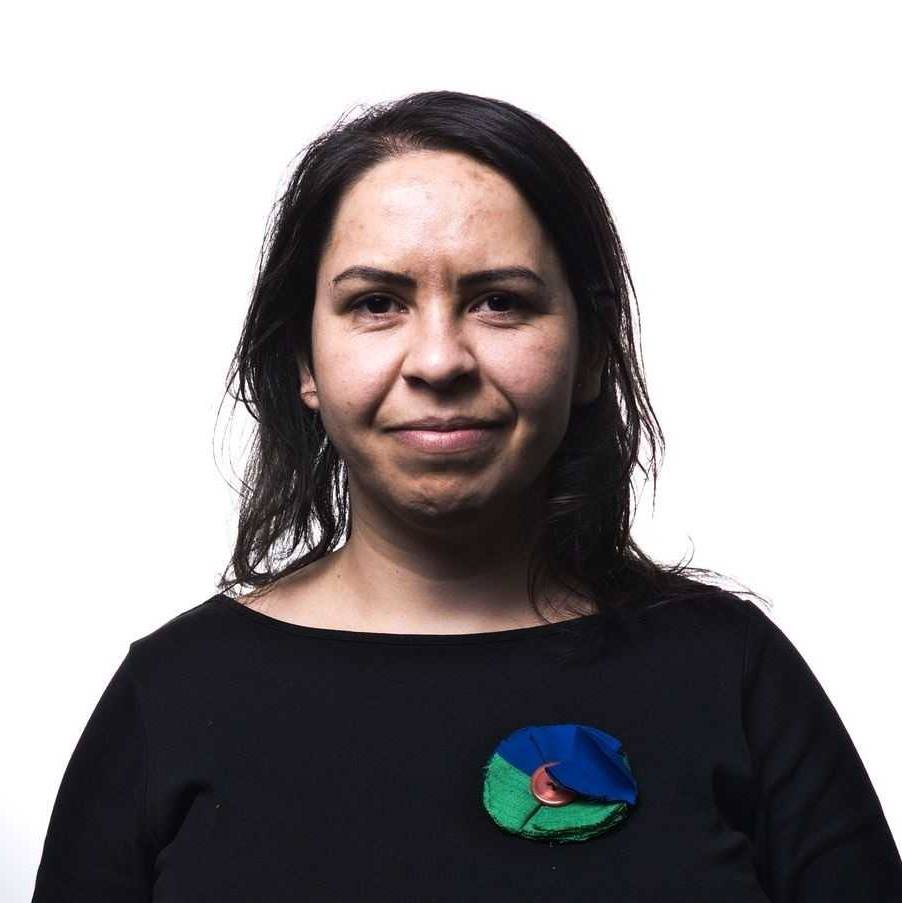
Simona Torotcoi is a Roma academic activist from Romania. She graduated from the Doctoral School of Political Science, Public Policy, and International Relations at Central European University in 2020, having previously completed an MSc degree in public administration from Leiden University and an MA degree in public policy at Central European University. Since 2017, she has been involved in different research projects focused on Roma youth civic and political participation. She contributed to the OSCE background paper on Roma youth civic and political participation, its status, and main challenges, and she has coordinated a research project for Phiren Amenca, a network of Roma and non-Roma volunteers and voluntary service organizations, that focused on Roma youth experiences when it comes to existing opportunities for participation in mainstream youth and student representation structures in 12 EU and non-EU countries. In the context of the post-2020 EU Roma Framework, Simona has contributed to the expert report on “The quality of participation in a post-2020 EU initiative for Roma equality and inclusion.”
Anna Mysyshyn, Ukraine
The application of new digital technologies in the Russia-Ukraine War and their impact on democracy and human rights
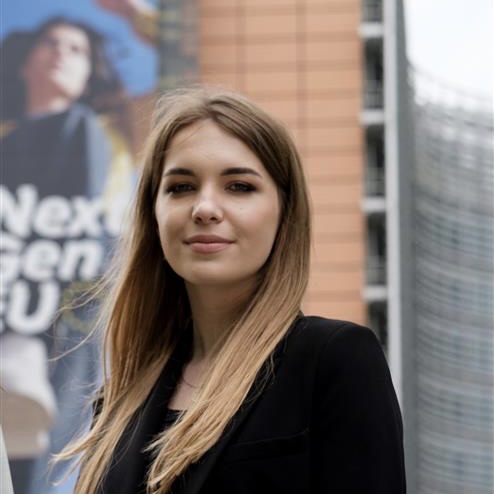
Anna Mysyshyn holds a PhD in law and is co-founder and director of the Institute of Innovative Governance. She is pursuing research for an LLM degree at the University of Edinburgh in the Innovation, Technology, and Law Program. Previously, she worked with the Resident Coordinator Office of the United Nations in Ukraine, as well as with the UN Development Program in the country, and she was also an intern in the parliament of Canada.
Anna has been actively involved in projects initiated by the Institute of Innovative Governance, which she co-founded in 2017 after graduating from the Master’s Program at the University of Tartu. The primary objective of the organization is to enhance the capacity of innovative democracy by introducing civic-tech projects that benefit civil society and safeguard human rights. Along with her team, she has developed several online tools to strengthen democracy and human rights in Ukraine, such as the Inclusive Web-checker, LobbyBot, and E-Women. She has also coordinated other projects related to cybersecurity, data protection, and digital rights in Ukraine and the Eastern Partnership countries. Since the beginning of the war in Ukraine, she has developed an online platform to provide legal assistance to vulnerable groups.
Iryna Dobrohorska, Ukraine
Veteran reintegration in Ukraine in the context of postwar reconstruction efforts
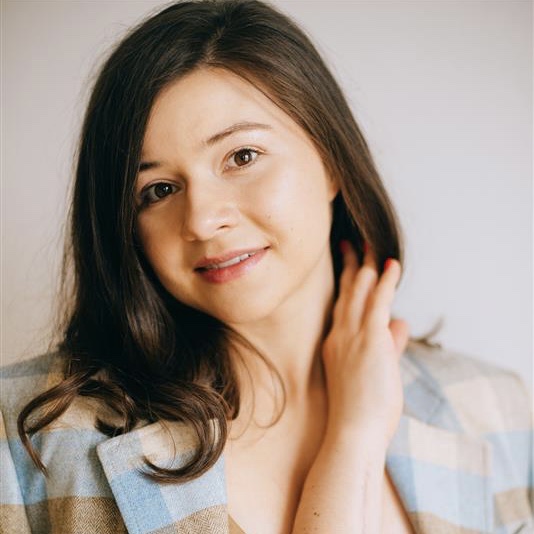
Iryna Dobrohorska is an international development professional from Ukraine. In the last two years, she has managed a veteran reintegration program for the International Research & Exchanges Board (IREX) in Ukraine. Prior to that, she was engaged in USAID-funded project focused on anti-corruption efforts in Ukraine and worked for the National Democratic Institute in the country. She holds an advanced MA degree in European politics and administration from the College of Europe (Bruges) and a BA degree from the Ukrainian Catholic University in Lviv. Currently, Iryna pursues the certification program in strategic communication from Kings College London. Fluent in English and French, she provided local production support to international media outlets during Russia’s full-scale invasion of Ukraine, including USA Today, TF1, and LCI. In the early stage of her career, she interned for the parliament of Canada and the Council of Europe.
2022
Katsiaryna Lozka, Belarus
The Belarus crisis and its impact on regional security.
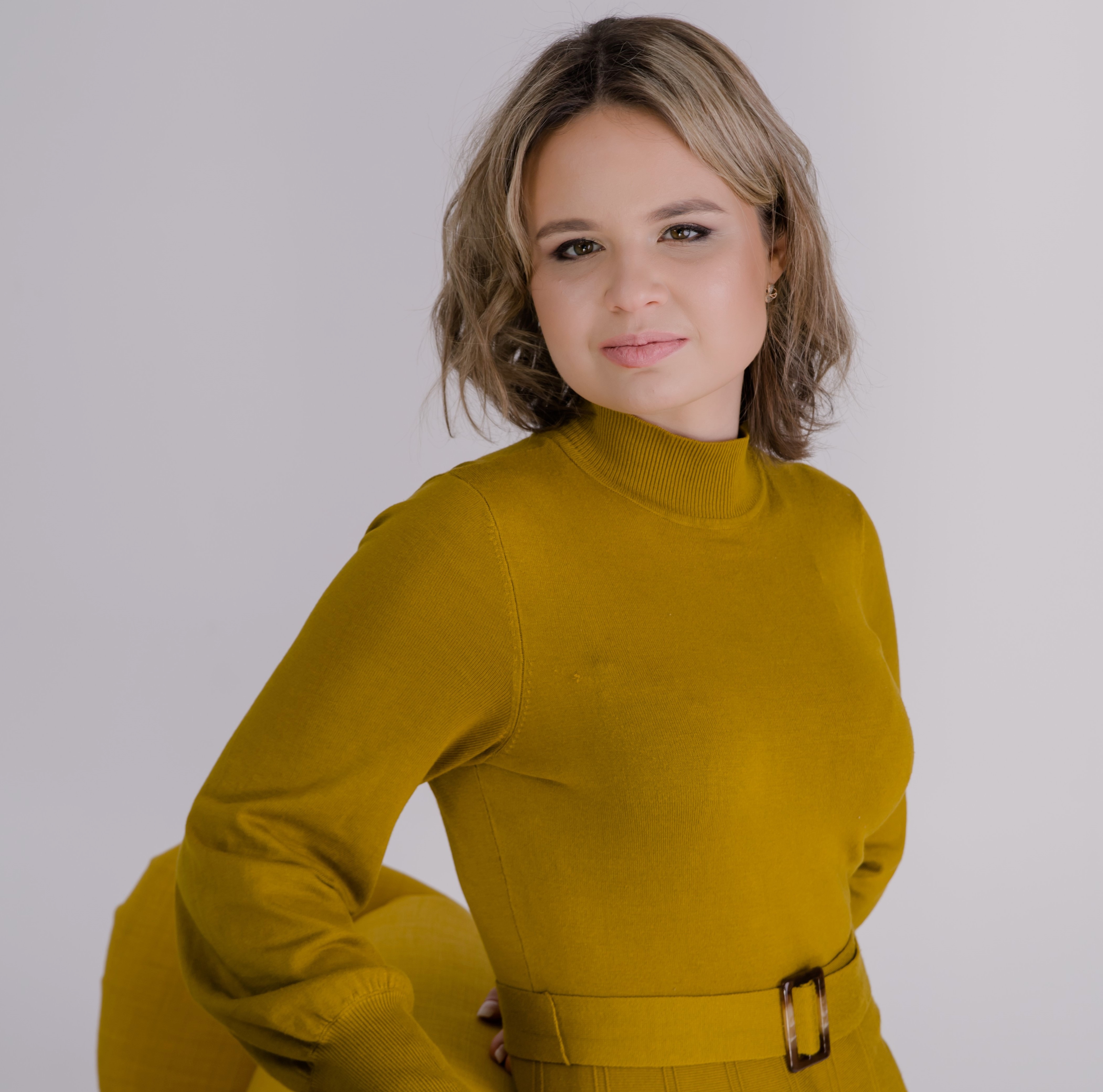
Katsiaryna Lozka is a PhD fellow at Ghent University and the United Nations University on Comparative Regional Studies (UNU-CRIS), specializing in Eastern European politics. As a doctoral student, she was a visiting researcher at Tartu University (Estonia). Katsiaryna holds an Master’s degree in EU international relations and diplomacy studies from the College of Europe in Bruges and a Master’s degree in European studies from Comenius University in Bratislava (Slovakia). She previously studied international politics and peace research at the University of Oslo and the Belarusian State University in Minsk. Her experience also includes work with the Belarusian Helsinki Committee, the GLOBSEC Policy Institute, and the International Association for Political Science Students.
Iliyana Arnaudova, Bulgaria
Regional cooperation on climate and security in Eastern Europe and Turkey.
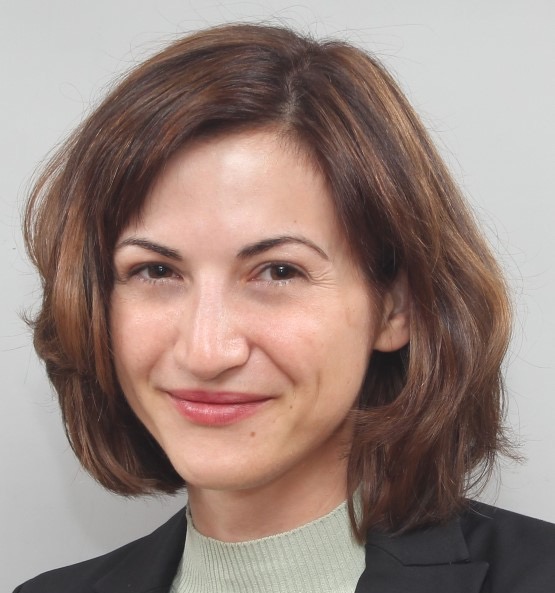
Iliyana Arnaudova serves as senior climate finance expert at the Global Covenant of Mayors for Climate and Energy. She has supported municipalities different in size and location in implementing and funding climate action, and she brings hands-on experience with intended nationally determined contribution and the Sustainable Energy for All initiative. She last served as clean energy finance manager at the C40 Cities Climate Leadership Group, where she led the implementation of technical assistance, research, and capacity development and coordinated C40’s city finance component under the Global Environment Facility-funded Urban Shift program. Born and raised in Bulgaria, Iliyana holds a BSc in politics and international relations and an MSc in environment and resource management from the United Kingdom and the Netherlands. She is a 2021 Atlantic Council Millennium Leadership Fellow and a pro bono innovation director at Oxford Urbanists, UK.
Jana Juzová, Czechia
Reenergizing EU enlargement: How can the V4 contribute?

Jana Juzová is a research fellow at the EUROPEUM Institute for European Policy. She graduated in international relations from Masaryk University in Brno, where she is finishing her PhD. The topic of her dissertation is regional cooperation in the Western Balkans in the context of the Europeanization of the region. During her studies, she gained experience also at the University of Bologna and the University of Pristina. Her previous working experience involves Central European think tanks and the EU’s Rule of Law Mission to Kosovo. Last year, she was a visiting fellow with Stiftung Wissenschaft und Politik in Brussels. In her research, she focuses primarily on the Western Balkans, EU enlargement policy, Europeanization, and democratization, as well as Visegrád cooperation and V4-Western Balkans relations. She has led several international projects focused on supporting democracy and regional cooperation in the Western Balkans, EU enlargement, and countering Euroscepticism in youth. She is a frequent commentator for Czech and European media and regularly cooperates with the Czech authorities responsible for the Western Balkans and EU enlargement. Through her professional activities, Jana strives to enhance the discussion about the EU enlargement to the Western Balkans across Europe and to reenergize the idea of European norms diffusion in the EU’s neighborhood through enlargement policy.
Justinas Mickus, Lithuania
The preferences of Eastern EU members on external economic policy.
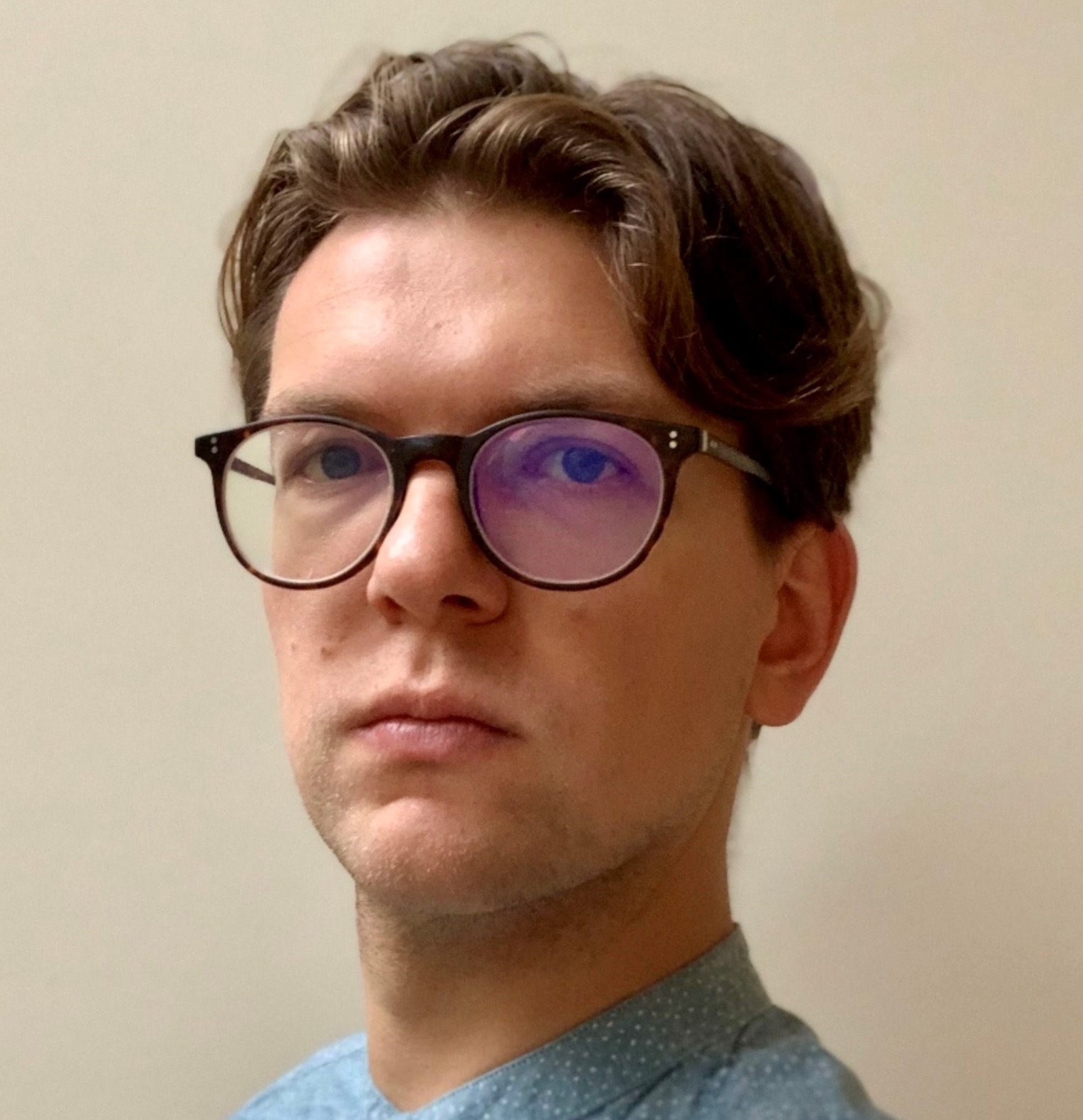
Justinas Mickus is a policy analyst at the Lithuanian government’s Strategic Analysis Center (STRATA). His main duties there involve strategic forecasting and consulting for the Ministry of Foreign Affairs on its strategic and policy-planning activities. Justinas also works as an associate analyst at the Vilnius-based Eastern Europe Studies Center, focusing on the EU policy agenda as it pertains to Central Eastern Europe and beyond. He is also an associate researcher for the European Council on Foreign Relations, where he covers Lithuania for pan-European research projects. Justinas has also been affiliated with the Vilnius Institute for Policy Analysis and the Liechtenstein Institute of Self-Determination at Princeton University, focusing primarily on Nordic-Baltic security and defense cooperation. In his academic work, Justinas analyzes the processes of European integration and preference formation in EU politics, with a special focus on the EU’s commercial trade, investment, and competition policy. He completed his Bachelor’s degree at Princeton University in 2020 and obtained an MPhil at the University of Cambridge in 2021.
Filip Konopczyński, Poland
Uncanny Central European valley? Government adoption of AI in illiberal democracies.
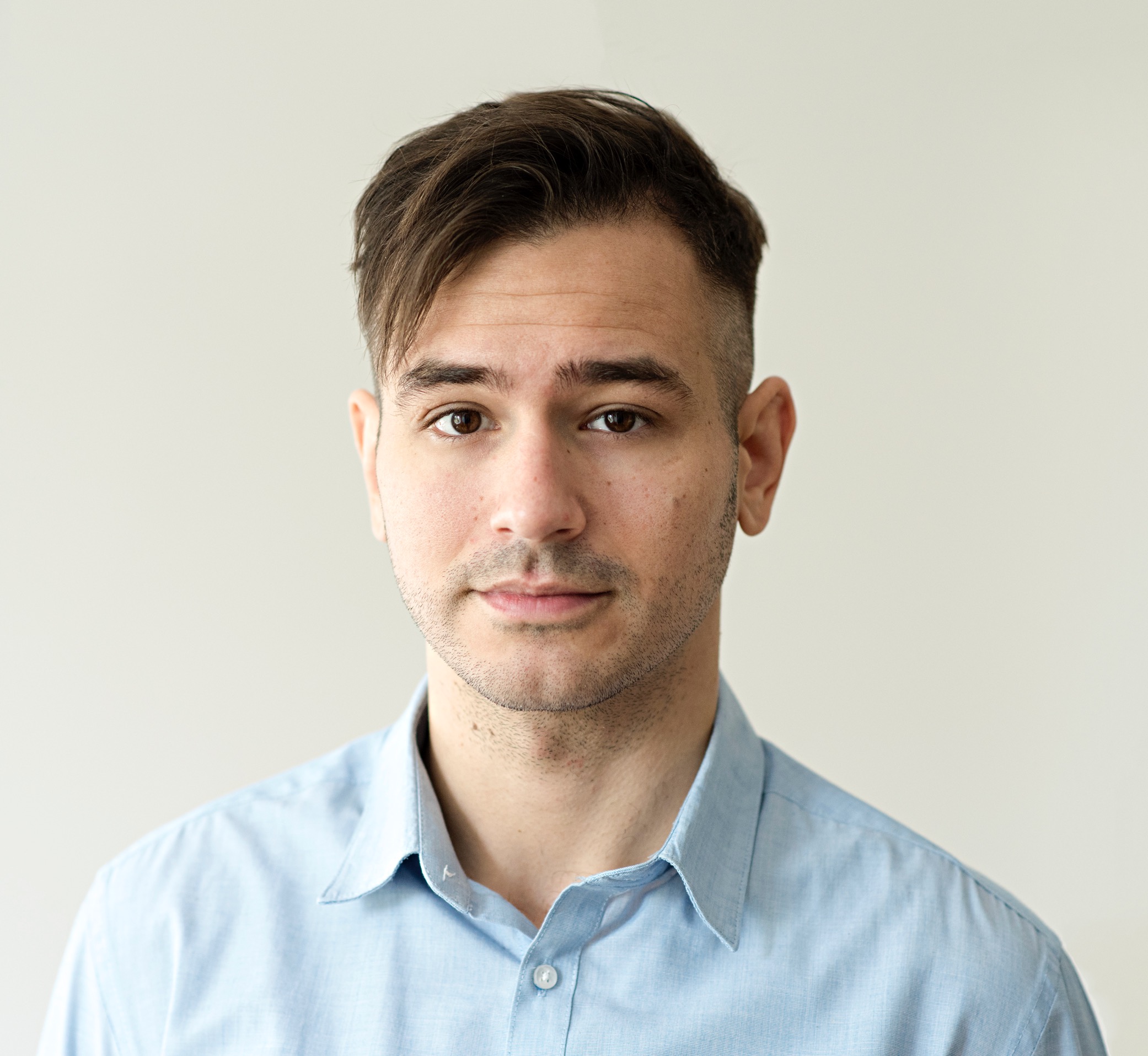
Filip Konopczyński is co-founder of the Warsaw-based independent think tank Kalecki Foundation, social and market researcher, research & development (R&D) project manager, analyst, commentator, and publicist. As a lawyer and cultural anthropologist, he examines the intersection of legal, societal, and economic dimensions of emerging technologies. He designed, coordinated, and worked on numerous research projects devoted to technological, economic, social, and political issues related to the digital transformation that covered topics such as social and economic aspects of artificial intelligence adaptation in Polish society, internet disinformation, and manipulation in the European Parliament elections, the use of digital technologies by Polish students and cybersecurity aspects of internet trolling. He has worked for diverse R&D institutes, nongovernmental organizations, human-rights agencies , academia, and international analytical platforms. He has published numerous articles for digital and print media outlets such as OKO.PRESS, Newsweek, Gazeta Wyborcza, Kontakt, Res Publica, Visegrad Insight, Krytyka Polityczna, Przekrój, and Vice.
Tomáš A. Nagy, Slovakia
The Bucharest 9 and the future of regional security cooperation.
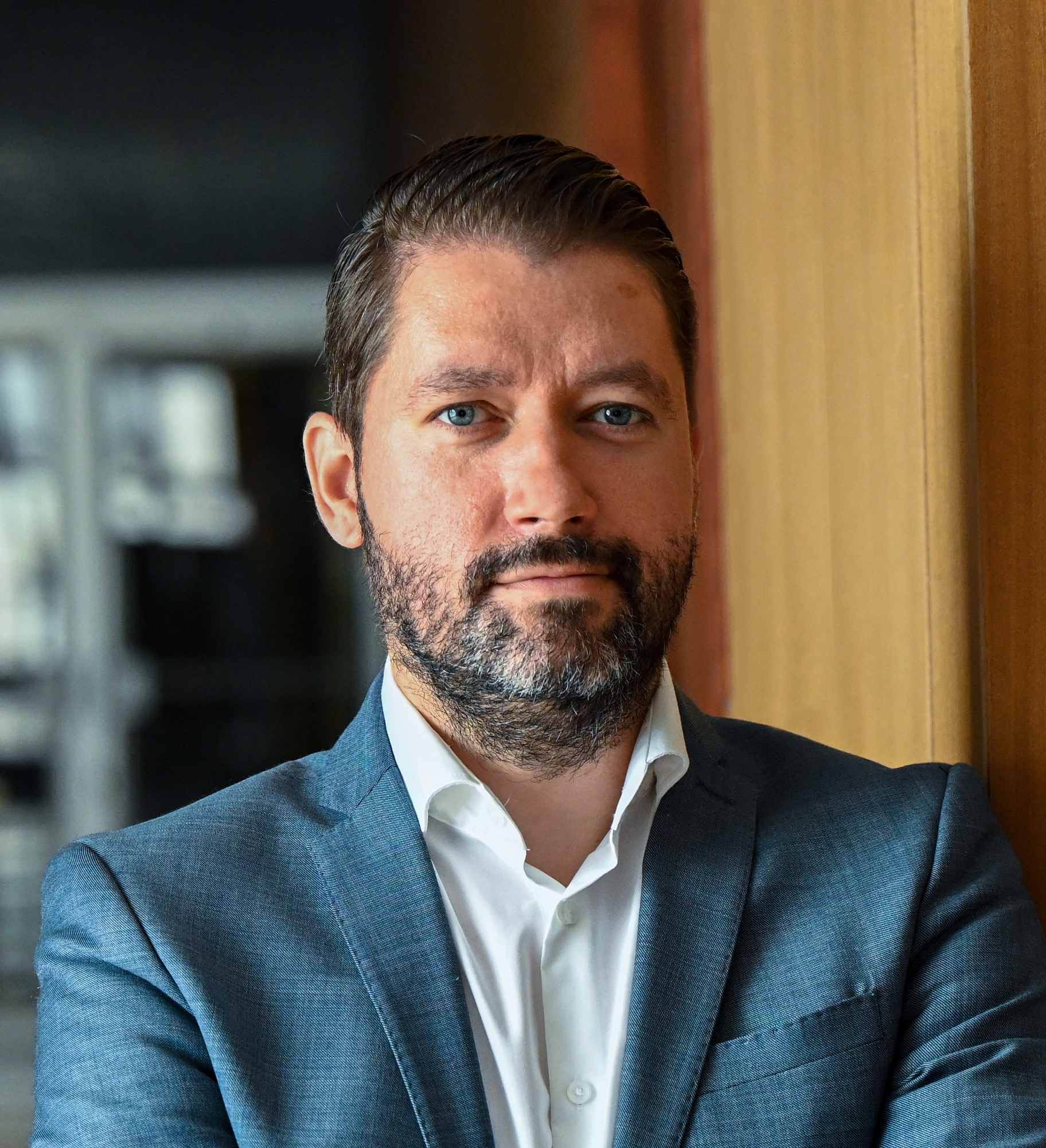
Tomáš A. Nagy is a security policy professional in international political affairs and global security. Since 2018, he has been senior policy advisor to the deputy minister of defense of Slovakia. He acts as a principal advisor to the leadership of the ministry on regional and transatlantic security cooperation. He was previously part of the GLOBSEC Policy Institute, where he co-led the defense policy portfolio and managed research/advocacy projects on NATO adaptation and European defense policy reform. His past work concentrated on a wide array of issues including global nuclear security, Brexit politics, US foreign policy, V4 cooperation, transatlantic affairs, and societal resilience. He received a BA in international relations and European studies from the Metropolitan University Prague (MUP) and Sciences Po Paris, and his graduate diploma in international security studies from the University of St. Andrews. He was a member of the inaugural class of the European Diplomatic Academy´s New Security Leaders and is an alumnus of the US State Department’s International Visitor Leadership Program. He holds certificates from the NATO School Oberammergau, the Harvard Kennedy School, the Vienna Center for Disarmament and Non-Proliferation, the Comprehensive Test Ban Treaty Organization, and the James Martin Center for Non-proliferation Studies.
Khrystyna Kvartsiana, Ukraine
The cyber dimension of the Russian war against Ukraine.
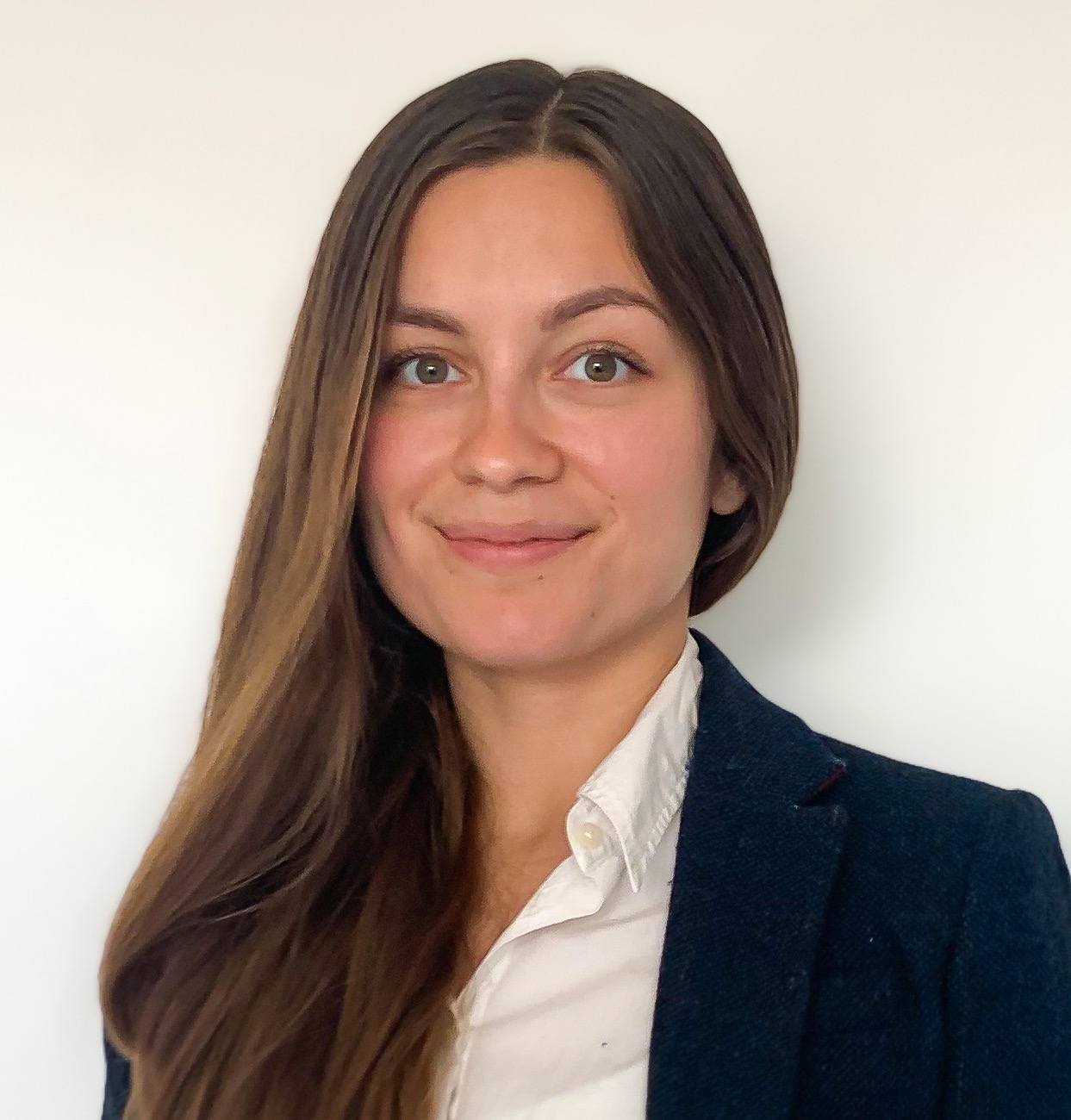
Khrystyna Kvartsiana is a political analyst in democracy and digitalization. She is a researcher at the Institute for Innovative Governance in Ukraine and a program development officer at ALDA–European Association for Local Democracy in France, where she designs international cooperation projects for the Eastern Partnership countries. She started her career with Transparency International Ukraine during the Revolution of Dignity in 2013. She then worked for the Council of Europe Office in Ukraine on an EU-funded project on media ownership transparency reform and in several think tanks in the field of anti-corruption and civil society empowerment. Her academic interests lie in the critical approach to digital technologies and their potential for improving and threatening democracy and sustainable development. Khrystyna holds Master’s degrees in political science with a focus on European affairs and anti-corruption from the Kyiv-Mohyla Academy and in sustainable development offered by the Sorbonne University in Paris, Leuven University, the University of Padua, and the University of Johannesburg. She is a native Ukrainian speaker, also fluent in English, French, Russian and Italian. As a Rethink.CEE Fellow, she will research the main techniques of Russian cyberwarfare against Ukraine and what lessons of Ukraine’s cyber resilience can be learned by the vulnerable countries of the region and by Western countries.
Olha Nykorak, Ukraine
The impact of Russia's legal narratives in Central and Eastern Europe.
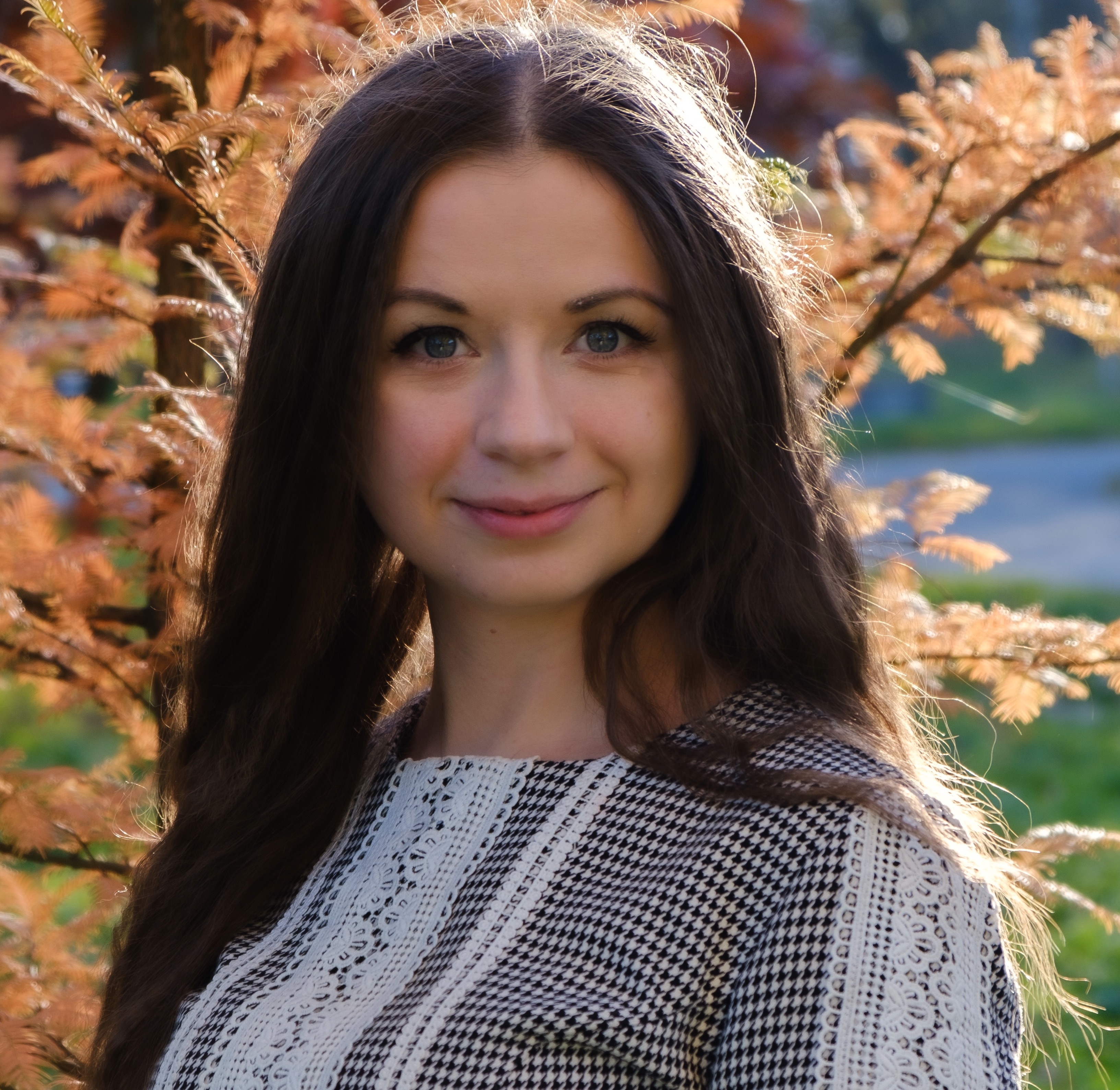
Olha Nykorak combines PhD study in constitutional law at the Ivan Franko National University of Lviv and coordination of educational projects as a project and program manager at the Ukrainian Catholic University. Previously Olha conducted research in Eastern European studies at the University of Warsaw as a visiting scholar and studied international public law at the University of Tartu. She obtained her analytical skills and experience in policy design as a legal and policy advisor to a member of the Ukrainian parliament and conducting analytical reports and massive online courses on religious rights and constitutional complaints in think tanks. Olha is an alumna of the Policy Designers Network of GMF, a graduate of the Polish and European Law School of the Jagiellonian University, and a European Forum Alpbach scholarship holder. Her research interests include constitutional identity, abuse of law through distorted legal narratives, European constitutional values, transnational constitutional law based on shared values, and interrelation between national and supranational law. During her ReThink.CEE Fellowship, she will pursue policy research on how to avoid Russian legal narratives distorting legal concepts in Central and Eastern Europe.
Khrystyna Parandii, Ukraine
Ukraine’s application for EU membership: Mapping policy options in wartime.
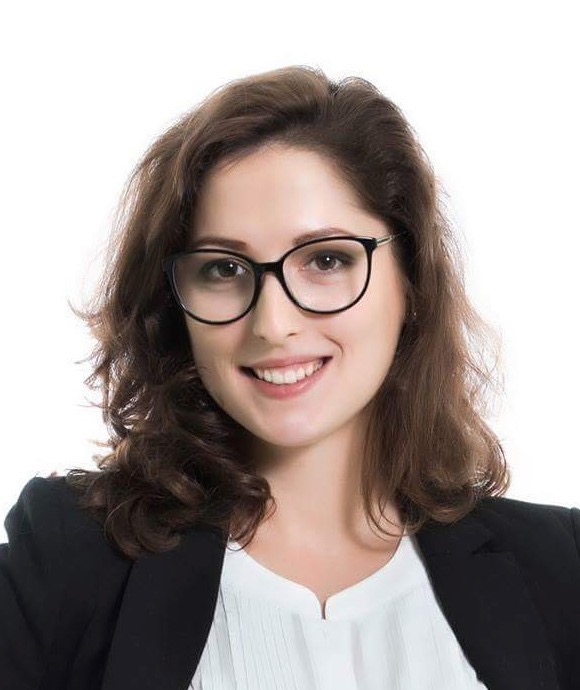
Khrystyna Parandii has over five years of experience in political and conflict analysis, obtained from diplomatic institutions, international organizations, civil society, and think tanks. Her areas of expertise include EU foreign policy with an emphasis on the Eastern Partnership countries, transatlantic relations, and democracy promotion. Having served as political officer at several European embassies in Kyiv and as international relations manager at Ukraine’s civil society coalition Reanimation Package of Reforms, Khrystyna has been focusing on the intersection of international relations and the reform process in Ukraine. She holds an MA in European studies from Maastricht University in the Netherlands and an MA in international relations and diplomacy from the College of Europe (Belgium). Khrystyna is also a former Clara Marina O’Donnell fellow at the London-based Centre for European Reform and an alumna of the Canada-Ukraine Parliamentary Program. She is a member and a former board member of Ukraine’s Professional Government Association.
2021
Marina Csikós, Hungary
Roma Women and Girls in the National Roma Integration Strategies (2010-2020): The Cases of Hungary, Romania, and Slovakia

Marina Csikós is a Roma feminist activist from northeastern Hungary. She holds a BA in social pedagogy and an MA in critical gender studies from Central European University. Marina has been involved with the Roma movement for a decade in Hungary and internationally. Currently, she works as a Roma inclusion trainee at EEA & Norway Grants in Brussels, where she co-manages Roma inclusion and empowerment in several programs throughout Europe. She is particularly interested in strategies to effectively address the needs of Roma women and girls in Central Europe.
Darina Dvornichenko, Ukraine
How Well Do Ukraine, Moldova and Georgia Engage Women in Politics?

Darina Dvornichenko is a Ukrainian educator and researcher. She has over 12 years of in-depth experience in academic work and research in Ukraine, and four years of experience in managing educational projects. She has been a guest lecturer at universities in Perugia, Italy, and Zagreb, Croatia. She has authored over 40 publications on European integration, gender issues, and digital activism. Darina is also the founder of Agents of Change!, a nongovernmental organization that promotes women participation in politics and non-formal education in Ukraine. She holds a PhD in political science complemented by certified programs at the National and Kapodistrian University of Athens, Greece, the University of Wroclaw and European Academy of Diplomacy, Poland, and the British Law Centre.
Bojan Elek, Serbia
Civic Engagement for Boosting Resilience to Organized Crime in the Western Balkans

Bojan Elek is a senior researcher at the Belgrade Center for Security Policy in Serbia. His expertise includes European integration and enlargement policy, police reform, the fight against organized crime, and security cooperation in the Western Balkans. He currently coordinates the Western Balkans Organized Crime Radar, a network of think-tanks. He is a coordinator of the Working Group on Chapter 24, within the National Convention on the European Union, a consultative body for dialogue between civil society and the Serbian government on EU integration. He has studied in Belgrade, Washington, Budapest, and in Edinburgh, specializing in political science, European studies, international relations, and public policy.
Rusif Huseynov, Azerbaijan
What is Karabakh worth?
Rusif Huseynov is co-founder and director of the Topchubashov Center, a think-tank in Baku, Azerbaijan. He obtained his Bachelor’s degree from Baku State University and a Master’s degree from the University of Tartu, both in international relations. His main interests are sociopolitical developments, conflicts, and ethnic minorities in post-Soviet countries, while his geographical focus is mainly on Eastern Europe, the Middle East, the Caucasus, and Central Asia.
Marjan Icoski, North Macedonia
Rethink the Future: Towards a New Brain-Drain Paradigm in the Western Balkans

Marjan Icoski is a program manager and lead researcher at the Association for Education Mladiinfo International in North Macedonia. His research interests are youth migration, youth participation, regional cooperation, and EU integration, with a specific focus on South-East Europe. Before joining Mladiinfo, Marjan worked as an academic tutor at the ERMA MA Program in Human Rights and Democracy at the University of Bologna, Italy, and he is currently alumni relations manager and visiting lecturer at the program. He holds an LL.M from the Ss. Cyril and Methodius University in Skopje, North Macedonia, and an MA in human rights and democracy from the University of Bologna.
Alexandra Martin, Romania/Belgium
The EU-China Relationship post CAI: Opportunities and Challenges for Central and Eastern Europe

Alexandra Martin heads the GLOBSEC Brussels Office. She joined the organization in 2018. Prior to this, she worked for the OSCE Mission to Skopje, the German Marshall Fund of the United States in Washington DC, and the European Union Monitoring Mission in Georgia. Her areas of research interest include transatlantic relations, NATO, Black Sea security, European defense, and the impact of disruptive technologies on the future of conflict. She completed her MA in international relations, with a specialization in conflict management, at Johns Hopkins University, School of Advanced International Studies.
Yuliya Miadzvetskaya, Belarus
EU-Belarus Relations after August 2020: Quo Vadis?
Yuliya Miadzvetskaya is a research associate at the Catholic University of Leuven, Belgium. Prior to this, she worked at the College of Europe in Bruges, the Legal Service of the European Parliament in Brussels, the UNHCR as well as UNDPI offices in Minsk, Belarus. She holds an LL.M in european law from the College of Europe, and a Master’s degree in European studies and law from Bordeaux and Toulouse Universities. Her research interests include EU external relations, cybersecurity, and the EU’s Common Foreign and Security Policy. Yuliya has published on EU sanctions, the EU cyber diplomacy toolbox, and EU-Belarus relations.
Paulina Milewska, Poland
Legal Threats and SLAPPs: Countering Tools for Targeting Free Media in Poland, Hungary, Slovenia, and Croatia

Paulina Milewska is a media expert and currently works on an anti-SLAPP (strategic lawsuits against public participation) project for European Centre for Press and Media Freedom. She studied law at the University of Warsaw and the University of Padua, and worked for Gazeta Wyborcza, the biggest daily newspaper in Poland. She served as deputy director of the American Center Warsaw where she focused on programs fighting disinformation. Paulina co-founded the award-winning social enterprise Kuchnia Konfliktu to support migrants and refugees. She is a Humanity in Action and Aspen Institute senior fellow.
Maksimas Milta, Lithuania
Higher Education as a Source of EU Soft Power in Eastern Partnership Countries

Maksimas Milta leads the Communication and Development Unit and is a part-time faculty member in the Department of Humanities and Arts at the European Humanities University, a Belarusian University-in-Exile in Vilnius, Lithuania. Maksimas is also an associate analyst at the Eastern Europe Studies Center and a frequent commentator to Lithuanian and international media. He holds a Master’s degree in Eastern European and Russian studies from Vilnius University and a Bachelor’s degree in cultural heritage from the European Humanities University. During his studies, Maksimas served as an elected representative at the Lithuanian National Union of Students and the European Students’ Union.
Aliaksei Patonia, Belarus
The European Hydrogen Economy and Russia: A Clandestine Battle for Democracy in Central and Eastern Europe

Aliaksei Patonia is an OIES-Saudi Aramco fellow at the Oxford Institute for Energy Studies. His current research focuses on technologies for large-scale and long-term energy storage to facilitate the transition from fossil fuels to renewables. Prior to that, he was a research fellow at Open Development Cambodia, a large and influential open data initiative, where he dealt with strategic environmental assessments, and energy and natural resource management. While obtaining university degrees in public policy, sustainable development, and oil and gas management, Aliaksei combined academic investigation with professional experience in the public and private sectors. His key research interests include sustainable development, energy transition, and energy geopolitics.
Aleksandar Vanchoski, North Macedonia
Countering Disinformation in the Western Balkan that Leads to Violent Extremism among Youth

Aleksandar Vanchoski is a researcher at the Institute for Human Rights in Skopje, North Macedonia. His research focuses on security, the rule of law, and human rights. Previously, he worked in project implementation and development, research, and monitoring for several national and international organizations. His interdisciplinary academic background includes Master’s degrees in law, human rights, and democracy as well as social development. In his Bachelor’s degree studies he majored in criminology and security studies, and he successfully completed a specialization program in good governance and diplomacy.
Anna Wójcik, Poland
How to Boost Independent Media in Central Europe

Anna Wójcik focuses on democracy, the rule of law, and human rights in Central Europe. Since 2016, she has been a researcher at the Institute of Law Studies of the Polish Academy of Sciences. Her Ph.D. project discusses limits that international human rights law sets to government attempts at restricting fundamental rights in the context of historical policy. Anna holds a Master’s degree in law from Warsaw University and MA in sociology and social anthropology from Central European University.
2020
Adéla Klečková, Czech Republic
The Role of Cyber Civic Activism in Countering Hybrid Warfare in Virtual Spaces

Adéla Klečková specializes in strategic communications and practices countering hybrid warfare, including the spread of disinformation in cyberspace. She works as head analyst for the Společně pro Česko think tank and as an advisor to the vice-chairman on Committees on Defense and Foreign Relations in the parliament of the Czech Republic. Under the patronage of People in Need, she developed a media literacy workshop for youngsters. Supported by the European Parliament, she developed a manual tackling non-conventional military threats, including public manipulation and cyber attacks. She regularly publishes articles explaining and exploring hybrid threats in Czech, German, and English. Previously, she studied journalism and international relations at Masaryk University in Brno and media communications at Freie University in Berlin. Consequently, she graduated from the Academy for Young Diplomats in Warsaw. She is also an alumnus of the Young Asian Scholars, the Robinson Martin Security Scholars Program, and the CEE HER Mentoring Programme run by GLOBSEC.
Ana Indoitu, Moldova
The Future of Work and Skills in the Eastern Partnership (Eap) Region
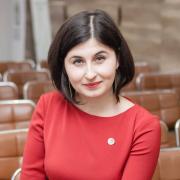
With an experience of five years within the civil society sector, Ana Indoitu has substantial expertise in strategic planning, social justice, community development, youth policy, advocacy, and democratic participation. She has graduated law school and entered the bar in 2019. Previously, she was elected vice president of the National Youth Council of Moldova, where she advocated and engaged in the development of youth policy in the country for two years. She runs INVENTO, a non-profit dedicated to social justice and citizens empowerment. She serves as an expert in youth participation, youth policy, strategic planning, project management, and youth empowerment. She has three years’ teaching experience in a national college and university. She is passionate about development, innovation, and education.
Andrea Garaiova, Slovakia/Serbia
Resisting the Tides of ‘Stabilitocracy’: Responses to Democratic Backsliding in the Western Balkans
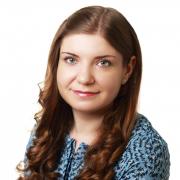
Andrea Garaiova is the co-founder and executive director of the Center for Policy Innovation, a think and do tank dedicated to harnessing innovation tools and methodologies to help public-sector organizations in the Western Balkans design and deliver human-centred policies that improve people's lives. She has previously served as a consultant at the European Bank for Reconstruction and Development, focusing on the Ukraine Reforms Architecture program supporting sectoral reforms and capacity building in Ukraine’s public administration. She has spent several years in Kosovo working with think tanks on addressing democratization, civil society development, reconciliation, and public-sector challenges. As a senior project manager at Open Data Kosovo, she led a project aimed at bringing digital solutions to problems faced by Kosovo municipalities. She holds a Master of public policy from the University of Oxford, an Master’s in international peace and security from King’s College London and a BA in European affairs and Central and Eastern Europe from Sciences Po Paris. As a Rethink.CEE Fellow, she will explore local civil society and media responses to democratic backsliding in the Western Balkans and their implications for democracy support in the region.
Anna Melenchuk, Ukraine
To Which Extent Is Digital Participation Inclusive at the Local Level? The Case of Ukraine, Moldova, and Georgia

Anna Melenchuk is a co-founder of the Institute of Innovative Governance, which aims to bridge public innovations and human rights. Her expertise lies in development policies, innovations, digital participation, and gender equality. She is working with the EU institutions to advocate Ukraine’s and the other Eastern Partnership countries’ interests in Brussels. She started her professional career in the United Nations office in Ukraine where she was helping the government to align its work with the Sustainable Development Goals—UN Global agenda 2030.Two years ago, she started advising the European Committee of the Regions on Ukraine’s local development and currently works for a EU-funded project. Together with her team in the Institute of Innovative Governance, she advocates inclusive digital development and analyzes the potential of some public innovations to bring transparency and accountability at local and national levels in Ukraine and the Eastern Partnership countries. She holds a Master’s degree in the East European studies from the University of Glasgow and University of Tartu. A native Ukrainian speaker, she is also fluent in English, Polish, Russian and speaks French, German and Italian.
Clara Volintiru, Romania
Democratic Resilience in Central European Cities: Economic, Political, and Social Drivers
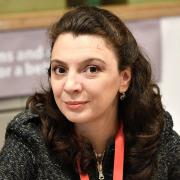
Clara Volintiru is associate professor in the Department of International Business and Economics at the Bucharest University of Economic Studies. She has a PhD from the London School of Economics and Political Science in government studies. She has been involved in various international research projects in the field of behavioral studies, good governance, informal exchanges, and political economy. Her research is focused on Central and Eastern Europe and the European periphery. She has worked for international organizations such as the World Bank, the European Commission, Eurofound, and the European Committee of the Regions. Her recent publications appeared with Oxford University Press, Palgrave Macmillan, Routledge, Rowman & Littlefield, and Peter Lang, and in peer-reviewed journals such as European Political Science Review, Eastern European Politics, Research & Politics, Acta Politica, or CESifo Economic Studies.
Edit Zgut-Przybylska, Hungary/Poland
Autocracy Beneath the Radar: How Orban's and Kaczynski's Regimes Use the Tools of Informal Power to Escape EU Scrutiny?

Edit Zgut-Przybylska is a Hungarian political scientist based in Warsaw. She is a guest lecturer at the University of Warsaw, Centre for Europe where she teaches Central European cooperation within the European Union. She is a PhD student at the Graduate School for Social Research in the Polish Academy of Sciences, and her main field of research is democratic backsliding in Hungary and Poland and the constraining role of the EU. She is also a fellow in a regional project entitled DemocraCE, facilitated by Visegrad Insight. She previously worked at Political Capital research and Consultancy Institute in Budapest as a foreign policy analyst. She also has been teaching international relations at Pázmány Péter Catholic University in Hungary. Prior to joining Political Capital, she worked as a foreign policy journalist at various media outlets in Hungary. She is a political commentator frequently appearing in the Hungarian and international media. She earned her M.A. in political science from Eötvös Loránd University and learned journalism at Bálint György Journalism Academy in Hungary.
Katsiaryna Shmatsina, Belarus
Digital Silk Road: Where Geopolitics Meets Cyber
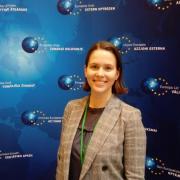
Katsiaryna Shmatsina is a foreign policy analyst at the Belarusian Institute for Strategic Studies. Besides Belarusian foreign policy, her research interests include the great-power competition between the United States, China, and Russia, and how it affects the CEE region. Previously, she worked for the American Bar Association where she managed the democratic-governance and rule-of-law projects developed in cooperation with the United Nations Development Program. She also served as a pro bono local expert on Belarus for the World Bank’s Doing Business and Women, Business, and the Law reports. She was awarded a Think Visegrad fellowship in 2019 and the Civil Society Leadership Award from the Open Society Foundations in 2015. She holds a Master's in international relations from Syracuse University, New York and a law degree from Belarusian State University. During her Rethink.CEE Fellowship, she will research the strategic interests at the core of China’s Digital Silk Road Initiative and its potential geopolitical implications for the CEE countries.
Marko Pankovski, Macedonia
Institutions at the Forefront: Mapping the Entry Points for Authoritarian Influence in the Western Balkans

Marko Pankovski is a researcher at the Institute for Democracy “Societas Civilis”—Skopje since 2016. His research interest revolves around the relationship between the foundations of good governance, public-administration reform, and European security and foreign policy. Previously he worked as a research assistant (intern) at the Department of Security, Strategy and Leadership at the Swedish Defense University, Stockholm where he was a part of a project exploring the European and U.S. considerations toward the conflicts in Ukraine, Iraq, and Syria. He is active within the youth sector, most notably as a member of the Governing Board of the National Youth Council of Macedonia (2017-2019). He holds a Master’s degree in peace and conflict studies from the Department of Peace and Conflict Research at Uppsala University, Sweden.
Olena Babakova, Ukraine/Poland
The Challenges and Opportunities of Immigration for the CEE countries

Olena Babakova is a freelance journalist and political analyst. She graduated from Taras Shevchenko National University in Kyiv, studied at the Graduate School for Social Research PhD program in Warsaw, and received her Ph.D. in history at Białystok University. In 2011-2016 she was an editor at the Polish Radio External Service, and later a permanent contributor to Krytyka Polityczna (Warsaw, Poland) and European Pravda (Kyiv, Ukraine). Her research interests include migration politics in the EU states with special emphasis on Poland and other V4 members, Polish-Ukrainian relations, politics of historical memory, and cultural diplomacy. Since 2017 she is project coordinator at the WOT Foundation (Warsaw, Poland), working on training and capacity-building projects for media professionals, local governance members, and human rights defenders. As Rethink.CEE Fellow she will elaborate the topic of how the intensive migration processes in 2010s have already influenced and will transform the political landscape, economy, and identity discourse in Poland, the Czech Republic, Croatia, Estonia, Ukraine, and Moldova.
Rados Musovic, Montenegro
Civic Engagement for the Further Democratization of Western Balkan Societies

Rados Musovic is a policy practitioner and a civil society activist from Montenegro. He has worked with civil society organizations in the Western Balkans, Turkey, and the United Kingdom. He focuses on EU enlargement policies and democratization of the enlargement and neighborhood regions. He is a member of the governmental operative body in charge of implementing and overseeing the strategy for informing citizens on Montenegro’s EU accession. Additionally, he is the country consultant for Montenegro within the European Endowment for Democracy. He is a lecturer within the Advance program in european law and economics at the Riga Graduate School of Law (Latvia) and supports several think tanks in in southeastern Europe as a policy researcher. He is a permanent member of the EU-Montenegro Joint Consultative Committee in the European Economic and Social Committee. He holds an Masters in international and European politics from the University of Edinburgh, a Bachelors in journalism from the University of Montenegro and a postgraduate certificate in European Union law and economics from the Riga Graduate School of Law. He is a recipient of the U.K. Foreign and Commonwealth Office Chevening Award. Under the Rethink.CEE Fellowship he will focus on understanding how civic engagement can enhance further democratization of Western Balkan societies.
Weronika Grzebalska, Poland
Assessing the Gender Politics of Re-Militarization in Central Europe

Weronika Grzebalska is a sociologist and independent analyst whose work focuses on militarism, security, right-wing politics, and gender in Central Europe. Her Ph.D. project, which she will defend at the Polish Academy of Sciences in 2020, seeks to explain the emergence of paramilitary organizing amid structural demilitarization in post-1989 Poland. She has published extensively on gender, militarism, and war, authoring the book Gender of the Warsaw Uprising (in Polish, 2013), and contributing to Gendered Wars, Gendered Memories (Routledge 2016), Gender: War (Macmillan Interdisciplinary Handbooks 2017). She has also worked on gender and illiberal right-wing politics, contributing to academic journals, policy volumes and media outlets. She was a fellow at the Trajectories of Change Program of the ZEIT-Stiftung, a Kosciuszko Foundation fellow at Clark University (United States), member of the FEPS Young Academics Network, and a president of the Polish Gender Studies Association. She currently lectures on militarism and war at the American Studies Center and the Gender Studies program in Warsaw. As a Rethink.CEE Fellow, she will analyze the gendered implications of changing national defense policy and civil-military relations in post-2014 Central Europe.
2019
Jan Jakub Chromiec, Poland
How to Boost Party-Political Engagement in Central and Eastern Europe?

Jan Jakub Chromiec is an analyst of European integration and international politics. After studying flute, linguistics, management, and public policy in Lodz, Mainz, Rotterdam, and Berlin he joined the German and U.S. offices of the Bertelsmann Foundation, focusing on building a rating agency for sovereign debt and Germany’s innovation policies. Subsequently he was a researcher at the Jacques Delors Institute in Berlin and a researching activist at the Batory Foundation in Warsaw, where he lobbied for an EU Rights and Values Program and prepared a manual on communicating European integration to the Polish public. He is pursuing a PhD at the Hertie School of Governance on the impact of eurozone membership on EU negotiations. Jan Jakub is an alumnus of the German Academic Scholarship Foundation (Studienstiftung). His social engagement focuses on the future of Polish-German relations in Europe. Under the Rethink.CEE Fellowship, he pursues policy research on how to boost party-political engagement in Central and Eastern Europe.
Bogdana Depo, Ukraine
From Solid E-Governance to Stronger Democracies in the Eastern Partnership
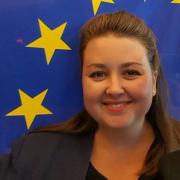
Bogdana Depo work on Eastern Partnership-related matters at the European Parliament. She is a doctoral candidate at Cologne and Prague Universities, and she is currently working on a book on EU and Russian policies toward the Eastern Partnership. Previously, Bogdana was a Marie Curie Fellow in the framework of the EXACT project on EU external action. Prior to working at the European Parliament, she was a researcher at the Centre for European Policy Studies in Brussels, at the European Institute of Public Administration in Maastricht, and at the International Centre for Policy Studies in Kyiv. She obtained her MA from the College of Europe and Kyiv National University. Bogdana also spent a year in the United States within the Future Leaders Exchange program of the U.S. Department of State. She speaks fluent English, French, and Polish, in addition to her native Ukrainian and Russian. As Rethink.CEE Fellow, she researches a project titled “Mastering Digital Darwinism: Solid E-Governance for Stronger Democracies in the Eastern Partnership”.
Luka Glusac, Serbia
Strengthening the Rule of Law in Central and Eastern Europe through Ombudsmen
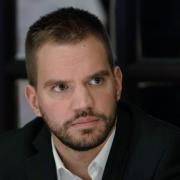
Luka Glusac received his PhD in political science from the University of Belgrade. His thesis focused on the evolution of national human rights institutions (NHRIs) and their relations with the United Nations. He obtained master’s and bachelor’s degrees in security studies at the University of Belgrade, and he is a graduate of the Diplomatic Academy of the Serbian Ministry of Foreign Affairs. His current research focuses on the role of NHRIs in multi-level governance. He published widely, most recently in the European Journal of Law Reform, the Netherlands Quarterly of Human Rights, the Journal of Human Rights Practice, and the International Journal of Human Rights. Besides his scholarly interest in NHRIs, he is also an experienced practitioner in this field. He is a senior advisor in the NHRI of Serbia (The Ombudsman), where he works since 2011. In 2018, he served as an NHRI Fellow at the Office of the UN High Commissioner for Human Rights. He is a member of the Executive Board of the Belgrade Centre for Security Policy, and he regularly provides expert advice and conducts peer reviews related to the ombudsman institutions and oversight of the security sector. His Rethink.CEE Fellowship project will consider how to strengthen the rule of law in Central and Eastern Europe through ombudsmen.
Pavel Havlicek, Czech Republic
Supporting Civil Society—Lessons Learned from the EU´s External Instruments
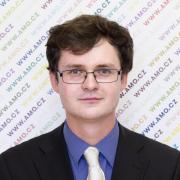
Pavel Havlicek is an analyst at the research centre of the Association for International Affairs in Prague, focusing on Eastern Europe (Ukraine, Russia, and the Eastern Partnership) as well as democratization and support for civil society. Pavel earned a master’s degree in Russian, Central, and East European Studies from the University of Glasgow and the Jagiellonian University in Krakow. He holds a bachelor’s degree from Charles University in Prague, and spent his Erasmus program at the University of Kent. He also did a study exchange at St Petersburg State University. He has interned at several Czech and international organizations, such as the European Parliament, the Czech Ministry of Foreign Affairs, the Czech NGO People in Need, and the European Endowment for Democracy. In 2017–18, Pavel conducted the research project "State of Czech Civil Society in 2018" in cooperation with the EU-Russia Civil Society Forum. During his Rethink.CEE Fellowship, he will research lessons to be drawn from EU external democracy assistance for civil society inside of the union.
Aliaksandr Herasimenka, Belarus
Pro-Democracy Advocacy on Digital Platforms
Aliaksandr Herasimenka is a research associate and a visiting lecturer at Westminster School of Media and Communications, University of Westminster. He also teaches at Middlesex University. He specializes in digital media, political communication, political activism, social movements, computational misinformation, and propaganda. As a lecturer, researcher and journalist, he has spent 13 years exploring the role of digital media in civil society and has dedicated his career to helping others use digital media to change lives. Aliaksandr has been involved in media production since 2007 as a journalist, editor, and media-relations specialist. During that time, he authored hundreds of publications for TV, radio, newspapers and the web. His journalistic work was recognized with national and international awards. Aliaksandr was also involved in organizing independent election monitoring in difficult political environments such as Russia, Belarus, and Ukraine. He was one of the leaders of a civic campaign on better visa regimes and transborder communication in Eastern Europe. Aliaksandr holds an MA in European studies from Aarhus University (Denmark) and a BA in political science from European Humanities University (Vilnius, Lithuania). His Rethink.CEE Fellowship project will focus on pro-democracy advocacy on digital platforms.
Matej Kandrik, Slovakia
Paramilitarism and Voluntary Civic Participation in the Defense Sector
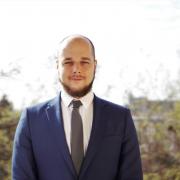
Matej Kandrik is executive director and researcher at STRATPOL—Strategic Policy Institute in Slovakia. He graduated in security and strategic studies at Masaryk University in Brno. Since 2015, he has been the editor in chief of the security-related website On War | On Peace, which is dedicated to strategic thinking, modern warfare, and contemporary security issues. Previously he conducted field research and a study visit at War Studies University in Warsaw. His research interests cover paramilitarism, strategic communication, information warfare, and political radicalism and extremism. He also worked as an analyst at the fact-checking project Demagog.cz in 2012–2015. He contributes to various Czech and Slovak media. During his Rethink.CEE Fellowship, Matej will conduct research into paramilitarism and voluntary civic participation in the defense sector.
Veranika Laputska, Belarus
Digital Influencers and Their Sociopolitical Impact in Central and Eastern Europe
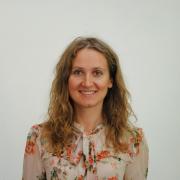
Veranika Laputska is a researcher and a PhD candidate in sociology at the Graduate School for Social Research, Polish Academy of Sciences. Veranika is a co-founder and research fellow of the EAST Center in Warsaw and part of the Digital Communication Network Belarus team. In her current capacity Veranika has implemented and carried out various projects dealing with democratization, elections, propaganda, and media studies. Her research interests and expertise also include study of the nationalism and politics of memory, visual and Jewish studies. Previously Veranika has cooperated with OSCE Office for Democratic Institutions and Human Rights, the EU East StratCom Task Force, the Council of Europe, Memo98, and the United States Holocaust Memorial Museum, and she worked in business consulting and academia. She holds a master’s degree in economy and society from Lancaster University, a master’s degree in East European studies from the University of Warsaw and a master’s degree in European studies from the European Humanities University. Her Rethink.CEE Fellowship will be dedicated to the theme of digital influencers and their sociopolitical impact in Central and Eastern Europe.
Dijana Mitrovic, Montenegro
Parliamentary Diplomacy in the Western Balkans
Dijana Mitrovic is a parliamentary adviser dealing with foreign affairs and diaspora in the Committee on International Relations and Emigrants of the parliament of Montenegro. She is a graduate in political science and international politics of the University of Belgrade. She has a strong interest in parliamentarism and parliamentary diplomacy on multilateral and bilateral levels. Her research projects mainly focus on topics within the scope of her work as a professional support to Montenegrin members of parliament. Being a practitioner for a long time, she gathered experience and know-how with the aim of connecting research with contemporary topic regarding the Western Balkans. Within her Rethink.CEE Fellowship, she will study the potential of parliamentary diplomacy in the Western Balkans.
Nataliya Novakova, Ukraine
Sustaining Civil Society in Central Europe—Current Threats and Ways Forward
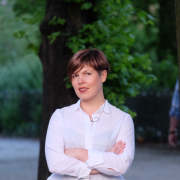
Nataliya Novakova has more than decade of experience working as a project manager and advocacy specialist in several international development, human rights, and humanitarian initiatives. She has strong expertise in international advocacy on migration, displacement, and human rights. She specializes in civil society development and support as well as in human rights and democracy. She has engaged with conflict alleviation efforts in Ukraine while working for the Norwegian Refugee Council and the German NGO Deutsch-Russischer Austausch. With the International Partnership for Human Rights and People in Need she worked on protection of human rights defenders at risk in Azerbaijan, in Armenia, and in conflict-affected and unsafe environments in Ukraine. She also has a strong expertise in minority and indigenous people rights thanks to her work in Eastern Europe and Central Asia with the Minority Rights Group Europe and the Georgian NGO Center for Participation and Development. Nataliya holds an MPA degree from Central European University and a PhD in political science from Taras Shevchenko Kyiv National University. Within her Rethink.CEE Fellowship, she will analyze the challenges facing civil society in Central Europe.
Anca Oprisor-Florian, Romania
Reviving Democracy from the Bottom Up: The Role of Local Civil Society Organizations
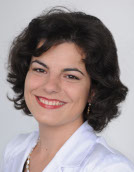
Anca Oprisor-Florian is a researcher and policy entrepreneur focusing on governance innovations and the interplay between state and civil society. As research fellow at the European University Viadrina she explores nationalism and its impact on inclusive democracy in the EU, and she is particularly interested in civil society strategies that can mitigate this impact. She has founded and directs the European Dialogue Forum, a cross-country platform that enables cooperation between NGOs tackling social divides across Europe. She holds degrees in political science and public policy from the Hertie School of Governance and the National School of Public Administration and Political Studies Bucharest. Over the past decade, Anca has been involved in cross-disciplinary work in government, academia, and civil society. She has worked with the European Commission, the Open Society Foundations, the RAND Corporation, and the Hertie School of Governance on issues related to migration and asylum, comparative public-sector reform, and developments in civil society. Her Rethink.CEE Fellowship project is to study the role of local civil society organizations for civic mobilization in Central and Eastern Europe.
Zsuzsanna Vegh, Hungary
Central Europe’s Foreign Policy Positions in the EU
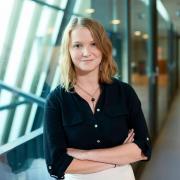
Zsuzsanna Vegh is a research fellow and PhD candidate at the Comparative Politics Chair of the European University Viadrina and an associate researcher at the European Council on Foreign Relations. Previously, she worked at the Center for European Neighborhood Studies of Central European University and at the Hungarian Institute of International Affairs. She holds MA degrees in international relations and European studies from Central European University and in international studies from the Eotvos Lorand University. Her research interests include Hungarian EU and foreign policy, Central European cooperation formats, including the Visegrad Group, the EU’s relations with its eastern neighborhood, and the radical right in the EU. Her Rethink.CEE Fellowship project is on countering radical right and nationalist influences on EU external relations.
2018
Michal Bokša, Czech Republic
Russian Information and Economic Warfare in Central and Eastern Europe: Strategies, Impact, and Counter-Measures
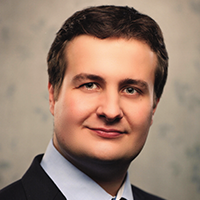
Michal Bokša is a graduate of the University of Cambridge (MPhil in International Relations and Politics). He is specializing in international security, with research and analytical experience from the politico-military dimension of the Organization for Security and Co-operation in Europe, NATO Defense College, and most recently NATO Supreme Headquarters Allied Powers Europe where he worked within the Civil-Military Analysis Branch. Currently, Michal serves as a lecturer at the University of Economics in Prague, where he teaches European Security and International Institutions within the Central and East European Studies Program. Besides security related issues he carries out research projects on issues of democratic governance, digitalisation, and e-Governance within the Central European context. Michal regularly publishes his research outcomes and articles in peer-reviewed journals, and in print and online media both abroad and in the Czech Republic.
Daniel Hegedüs, Hungary
How to Anchor Democracy in the EU? An Efficiency Analysis of EU Measures Countering Democratic Backsliding in Member States
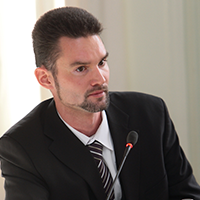
Daniel Hegedüs is research consultant in the Nations in Transit program of Freedom House and visiting lecturer at Humboldt University in Berlin. His areas of research include populism, democratic backsliding, as well as European and foreign affairs of East-Central-European countries. He has studied political science, history, and European law at Eötvös Loránd University in Budapest and Humboldt University in Berlin. In the past, he has worked in different research, lecturer and project management positions at the German Council on Foreign Relations (DGAP), the German Institute for International and Security Affairs (SWP), the Institute for Eastern-European Studies of Free University in Berlin, and Eötvös Loránd University in Budapest. He is author of numerous academic and policy papers, and he frequently comments on European affairs in German, Hungarian and English.
Alexandra Ioan, Romania
Fostering Democracy from Abroad. Civic Engagement and Democratic Influence of Diasporas of Central and Eastern European Countries
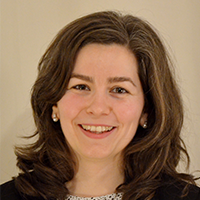
Alexandra Ioan is a young professional and researcher focusing on the development of effective civil society organizations and policy-making processes. She is currently finalizing her PhD in Governance at the Hertie School of Governance in Berlin and is a project manager at Ashoka Germany. Originally from Romania, Alexandra is currently building a community of engaged citizens as part of Diaspora Civică Berlin. Academically, Alexandra has striven to translate research findings into concrete policy recommendations. She holds degrees from the Hertie School of Governance, the University of Bucharest and the National School of Public Administration and Political Studies in Romania. She was a Visiting Student Researcher at the Stanford Center on Philanthropy and Civil Society, Stanford University.
Maciej Kuziemski, Poland
Towards Political Commons - (In)formalizing Civil Society Organizations in Central Europe

Maciej Kuziemski is a policy entrepreneur interested in the governance of emerging technologies, sustainability transitions, and public sector innovation. He has spent the last decade heading an innovation policy network, managing aid programs in Burma, and advising non-profits and governments across the EU. Maciej holds a BA in European studies from the University of Warsaw, and an MPP from the University of Oxford. He has cooperated with the Atlantic Council of the United States, the European University Institute, and Humanity in Action. His writing has been featured by Project Syndicate, Quartz, and Visegrad Insight.
Asya Metodieva, Bulgaria
Foreign fighter mobilization in the Ukraine conflict
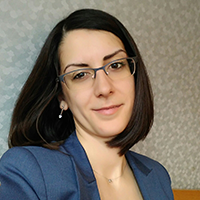
Asya Metodieva is a PhD candidate at Central European University (CEU) in Budapest. Her dissertation deals with the issue of foreign fighter mobilization in post-violent societies. Asya has been a teaching assistant for the terrorism and Counterterrorism and public management classes at the CEU School of Public Policy. She holds an MA in international public policy from CEU and an MA in international relations and security studies from Sofia University “St. Kliment Ohridski.” Her research interests include global governance, international security (terrorism and counterterrorism, energy security, cybersecurity), and politics of Central and Eastern Europe. Previously, Asya worked as a journalist for the Bulgarian National Television (BNT).
Stanislava Topouzova, Bulgaria
Migration Governance in the Balkans: Coordinating State Authorities and Non-State Actors
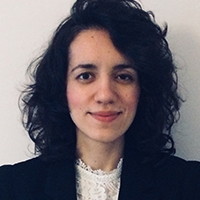
Stanislava Topouzova is a doctoral candidate at the Faculty of Law at the University of Oxford. Since 2014, she has examined how status determination procedures for international legal protection are conducted in Bulgaria. She completed her master of science at the Department of International Development at the University of Oxford in 2014. During her time at the University of Oxford, she worked at the Department of International Development, the International Migration Institute, and the Refugee Studies Center. She also led the Oxford Migration Studies Society (OMSS) and the Oxford Children’s Rights Network (OCRN). Stanislava previously worked at the Montreal Institute for Genocide and Human Rights Studies, the Centre for International Peace and Security Studies, and UNICEF Canada. She completed her honors bachelor of arts at McGill University in 2012.
Magdalena Wnuk, Poland
MEPs from the Visegrad Four Countries - Do They Matter and What are Their Political Strategies in the EU?
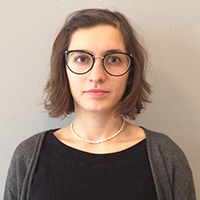
Magdalena Wnuk is an academic researcher and policy analyst. For the past five years, she has worked for Association 61, most recently as senior analyst at its web service MamPrawoWiedziec.pl. She specializes in analyzing parliamentary data and legislation. She currently awaits her PhD defense at the Institute of History of the Polish Academy of Sciences where she prepared a thesis about integration processes of 1980s Polish emigres in Western Europe. Her research interests include migration, nationalism, citizenship, and European integration.
Andrei Yeliseyeu, Belarus
The Eurasian Economic Union Three Years On: Achievements and Failures
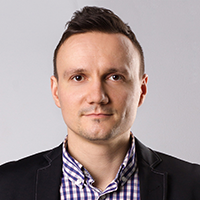
Andrei Yeliseyeu is a Belarus-based legal and social scholar. He holds multiple degrees from Belarusian and Baltic states universities. Andrei is the academic director of the EAST Center, a Warsaw-based think-tank focused on post-Soviet and East European studies. Prior to that, Andrei worked as analytical journalist at the Belbiz Center of Business Communication, research fellow at the Belarusian Institute for Strategic Studies, and international correspondent for the European Radio for Belarus. Andrei's principal expertise concerns migration and visa policy, Eurasian integration, disinformation, Belarus' foreign policy, EU and Russian sanctions. Previously, Andrei held fellowships at the Finnish Institute of International Affairs and the GLOBSEC Policy Institute.
Testimonials
Expand AllTestimonials
Marina Csikós (Hungary, 2021)
Gender equality professional

Public policy has a great influence on our lives and on the opportunities we have. In order to generate positive changes for women of color, especially Roma women and girls, I realized I needed to engage with public policy on a deeper level. This fellowship was an excellent opportunity for me, not only to develop my research and policy skills but also to strive for a more just and diverse public policy.
Luka Glušac (Serbia, 2019)
Assistant Director and Research Fellow, Institute for Philosophy and Social Theory, University of Belgrade, Serbia
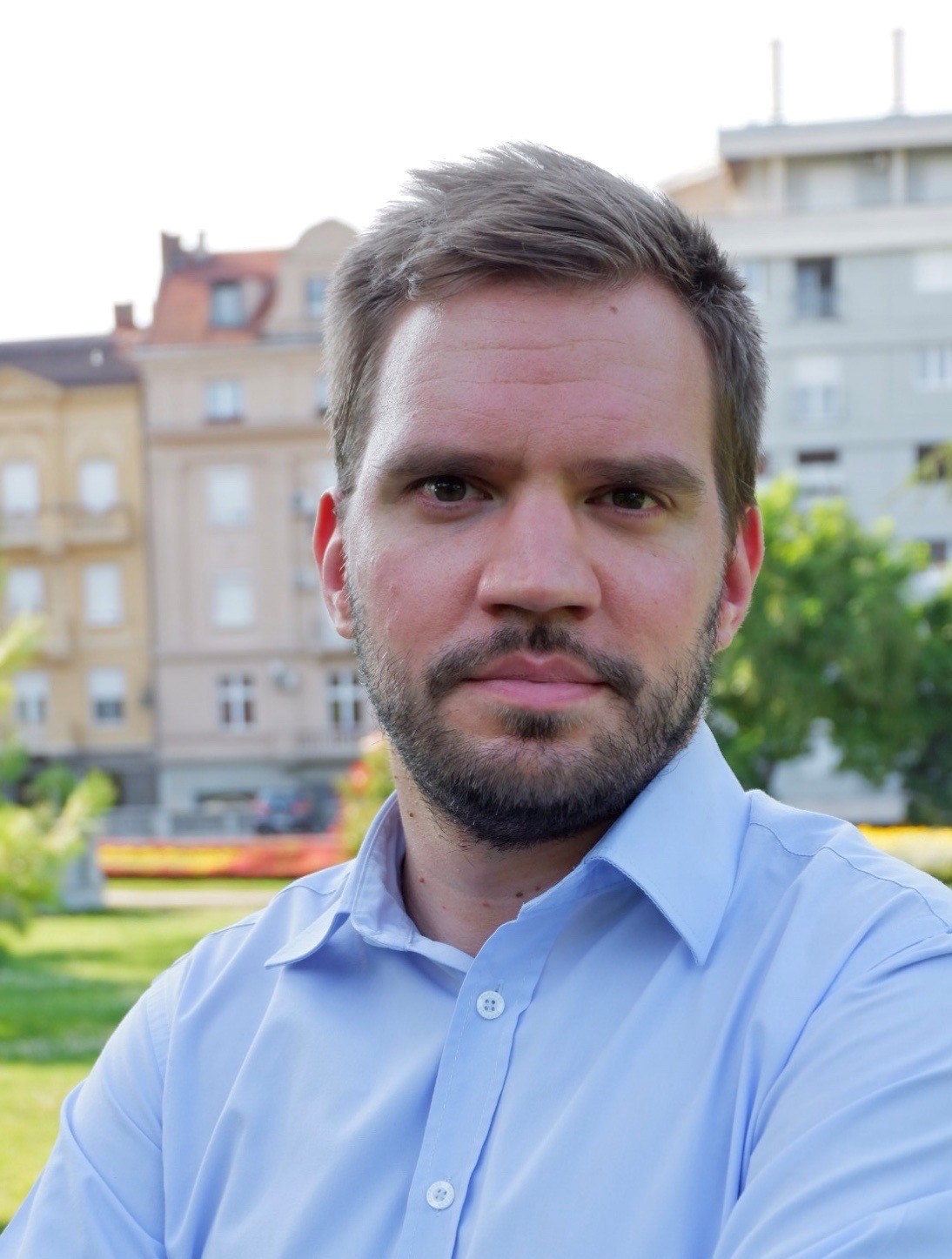
The ReThink.CEE fellowship came at a perfect moment in my career, when I was transitioning from working in the state administration to academia after receiving my PhD. I wanted to do policy-relevant research on how we can restrain the growing powers of the executive branch in Central and Eastern Europe and stop the state capture already visible across the region. When I came across the call for ReThink.CEE fellowship, I looked no further. It is so rare nowadays that someone calls you to propose your own research idea, provides you with funding, and supports you in every way throughout the process, putting very little or no limitations. GMF’s ReThink.CEE fellowship offers exactly that. Discussions and workshops with GMF experts and other fellows enriched my understanding of the region, greatly improved my policy-writing skills, and allowed me to become part of a truly epistemic community. The ReThink.CEE Fellowship was such a rewarding experience. I cannot recommend it enough. Go for it!
Pavel Havlíček (Czechia, 2019)
Research Fellow, Association for International Affairs, Czechia
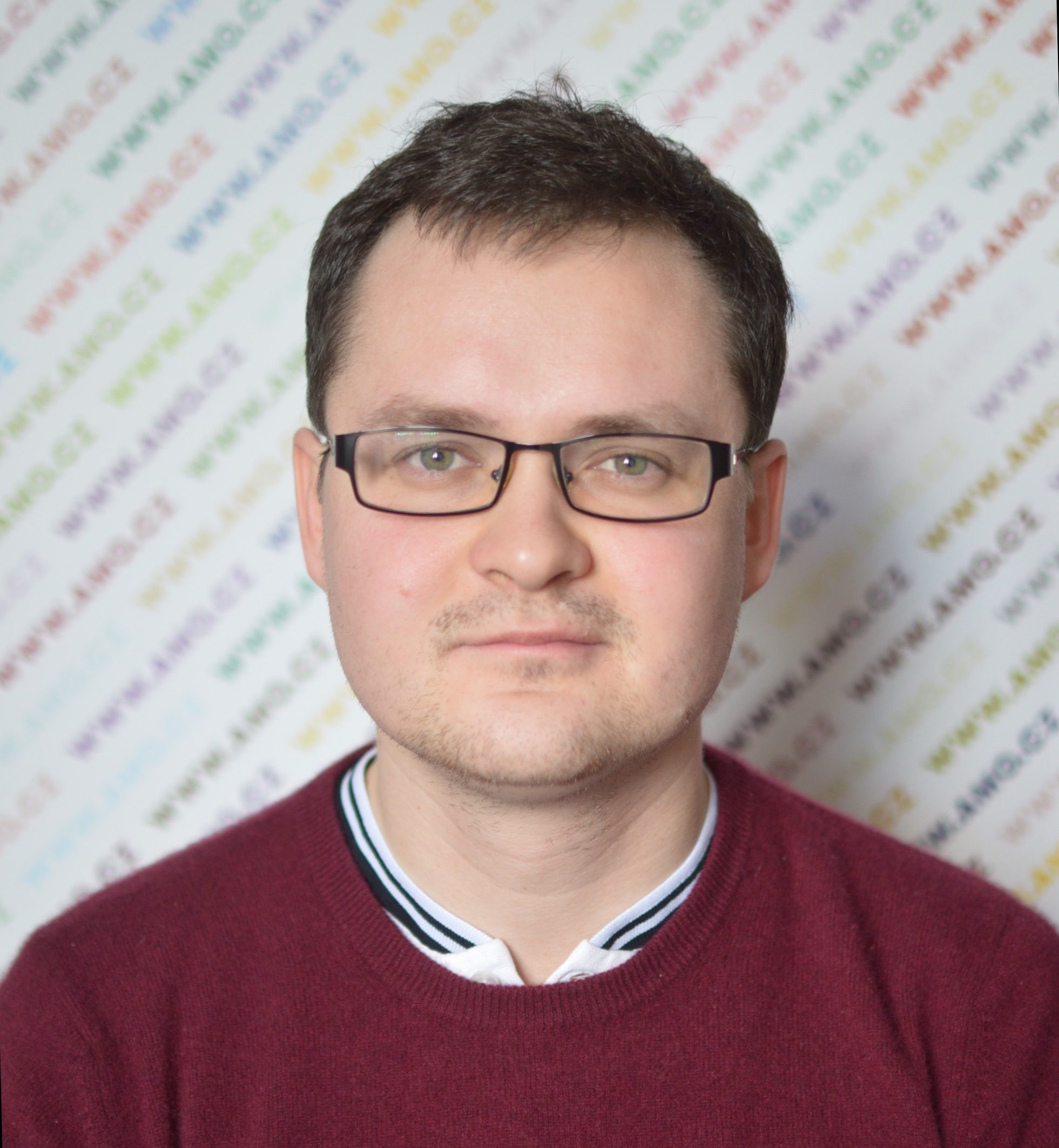
My experience with the GMF Rethink.CEE fellowship in 2018–2019 was very positive and I would recommend it to starting researchers and professionals from across Central and Eastern Europe. What I really appreciated was the opportunity to pursue my own research interest under the roof of a reputable and widely known international institution as well as the time flexibility with which the research project was planned and designed for the year-long-collaboration. For me this was an important career step that opened new doors and access to the research and policy-oriented community working on democratization in Brussels and beyond, which helped me to build a network of contacts for future projects and cooperation. Finally, I really enjoyed working with GMF with which I am still not only in touch thanks to the alumni community, but also actively working on new initiatives related to Central and Eastern Europe as well as the wider Eurasia region.
Arta Haxhixhemajli (Kosovo, 2023)
Research Officer, Balkan Forum
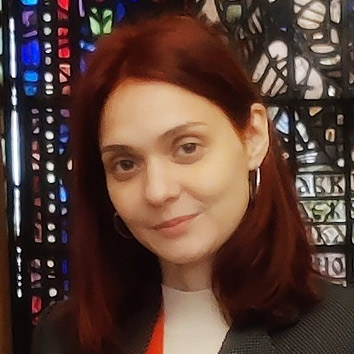
I am grateful to have been the first person from Kosovo selected to participate in the ReThink.CEE Fellowship. I had the opportunity to expand my network and complete my policy paper on China’s Digital Silk Road in the Western Balkans. The fellowship gave me the guidance and knowledge to understand and be part of something bigger. It is worth it to go for it and enhance your research skills. I am expressing my gratitude for making my journey possible and for giving me the privilege to be part of such an impactful and inspiring fellowship.
Matej Kandrík (Slovakia, 2019)
Chief Executive Director, Adapt Institute, Slovakia
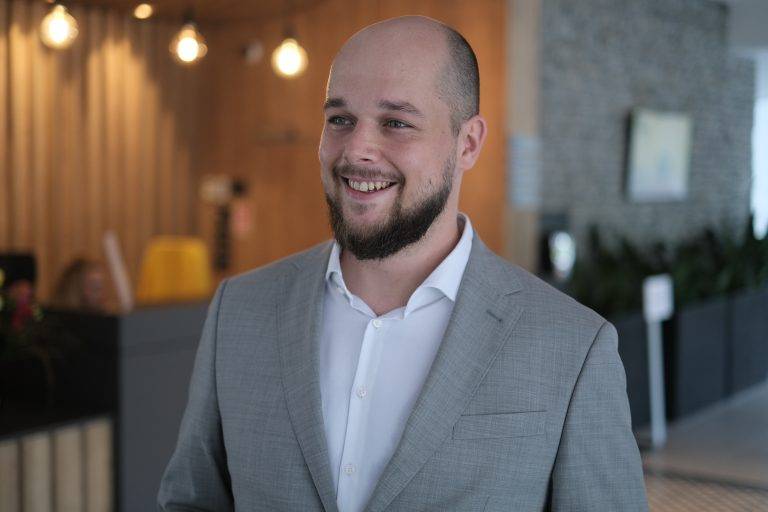
The ReThink.CEE fellowship was a genuinely exceptional opportunity for me. With the support of GMF, I was able to undertake extensive field trips across Central and Eastern Europe, meet my interviewees in person, and deeply engage with my research topic, which focused on paramilitarism. This experience was pivotal in kick-starting my subsequent activities in the field and in connecting me with leading experts and practitioners. The support from GMF was consistently professional, ranging from editors who significantly enhanced the quality of my writing to administrators who assisted with the formal aspects of the fellowship. Last but certainly not least, networking with other fellows and within the GMF network proved not only to be a useful door-opener for future collaborations but also instrumental in building deep and long-standing friendships.
Asya Metodieva (Bulgaria, 2018)
Researcher, Institute of International Relations Prague, Czechia
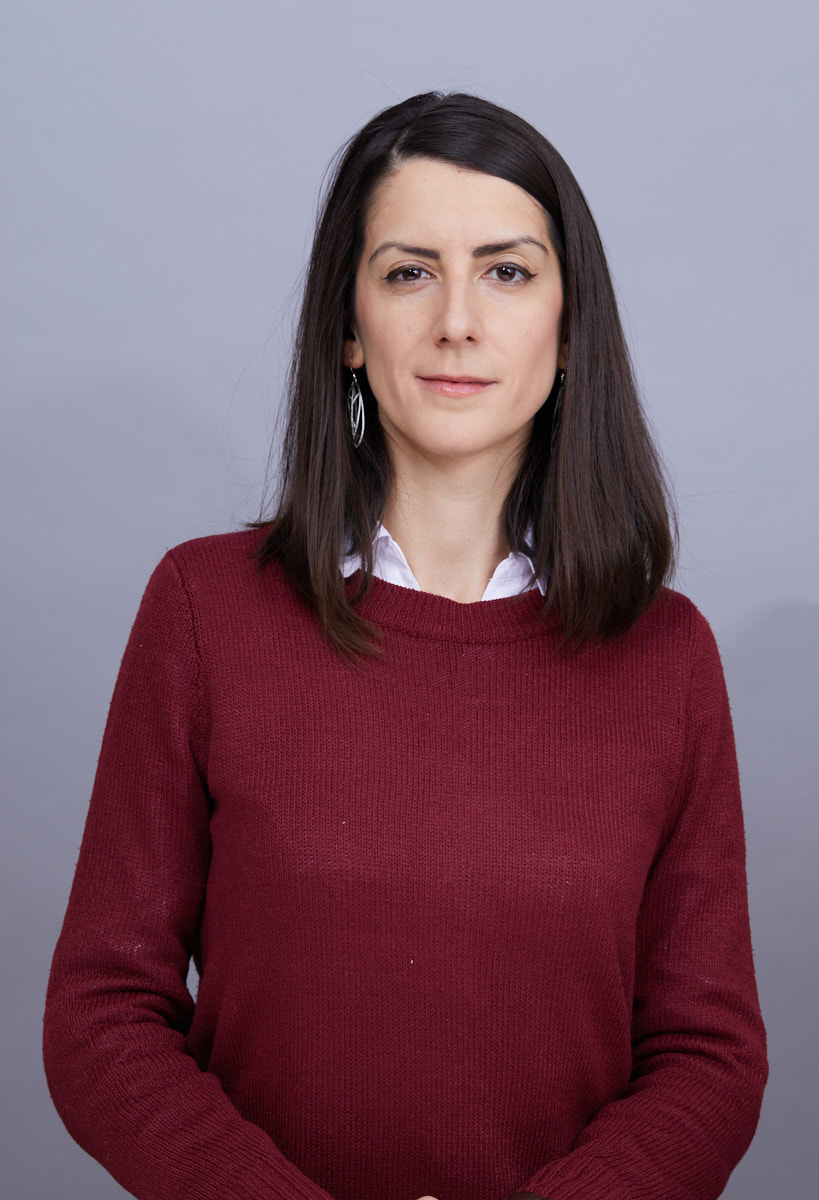
The ReThink.CEE fellowship was a great opportunity in my professional journey. I was in the second year of my PhD studies when I was selected for the fellowship and thanks to GMF’s support, I could spend more time in the region of my research—the Balkans. The fellowship helped me foster meaningful collaborations with colleague in GMF and experts throughout the region. This experience added a new dimension to my work as I could improve my skills as a policy analyst. The exposure to real-time political debates and the expansion of my professional network were my best takeaways from the fellowship. If you have an idea and you would like to research it, go for it! ReThink.CEE is a great way to increase your knowledge, do some on-the-ground research, and work with accomplished policy experts.
Marko Pankovski (North Macedonia, 2020)
Organisational development professional
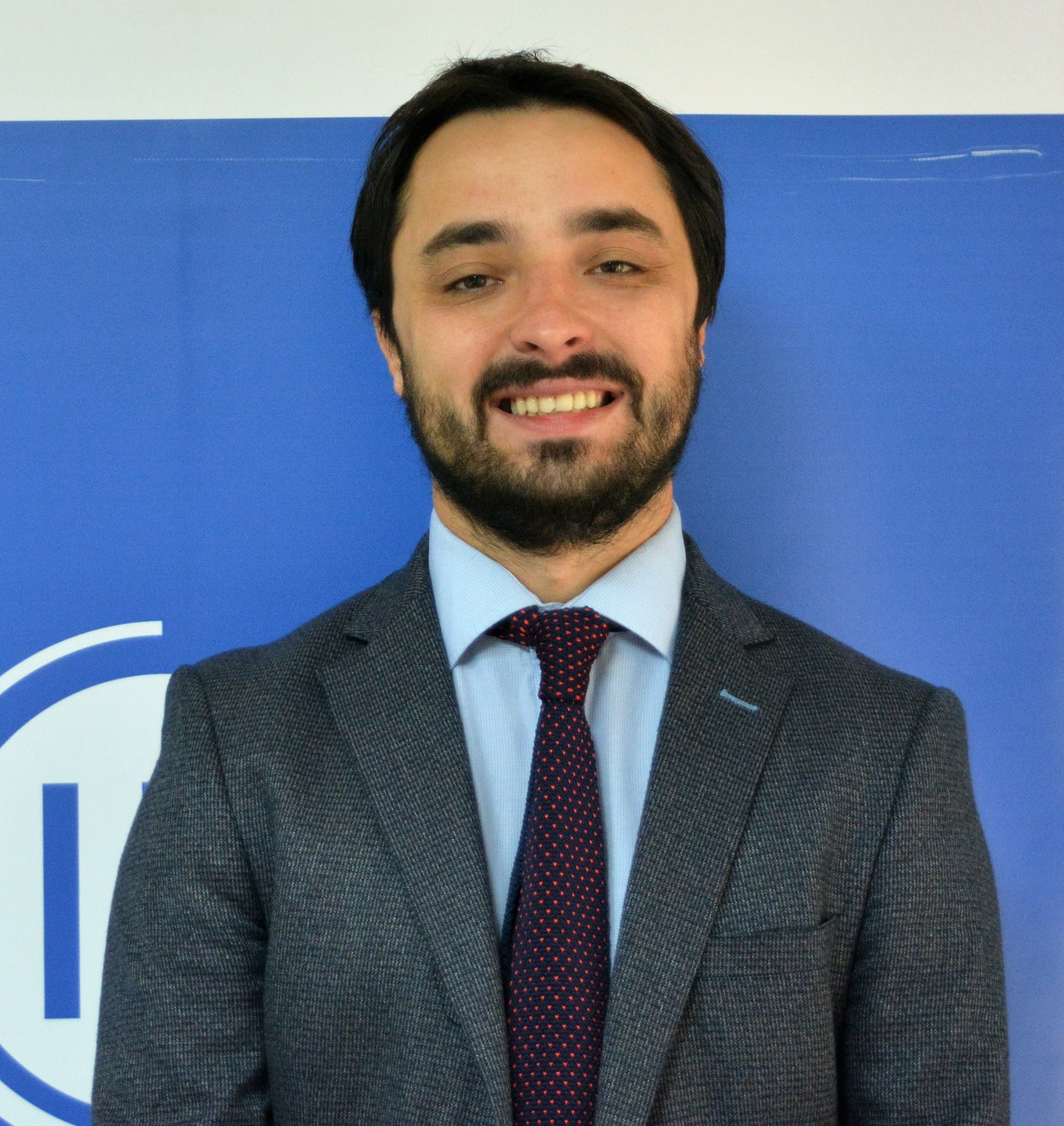
Participating in the ReThink.CEE fellowship was a transformative experience that enriched my career as a policy researcher. The program’s structure and emphasis on in-depth policy research allowed me to delve into critical policy issues and to contribute to strengthening democracy in the Western Balkans. The fellowship provided support and practical training on policy research and writing, and it helped me refine my analytical and strategic thinking.
As a ReThink.CEE fellow, you will be encouraged to innovate, to consider new perspectives, and to analyze today’s challenges from different angles. During and after the fellowship, you will enjoy access to a community of forward-thinking professionals that, in my case, has been crucial in sustaining my involvement in transatlantic policy dialogues. I wholeheartedly recommend this fellowship to aspiring policy experts. It is a unique opportunity to enhance skills, expand networks, and address critical challenges for democracy today.
Christina Parandii (Ukraine, 2022)
Senior Policy Officer for Humanitarian Disarmament, PAX, The Netherlands

The ReThink.CEE fellowship provided me with a great opportunity to deepen my expertise in my topic of interest, further grow my professional network, and have my ideas presented to relevant policy stakeholders. Having my policy paper published by such an outstanding think tank as GMF was a crucial step forward in my career, which helped me to become a recognized expert in the EU enlargement policy field. I appreciated the fine balance between the freedom in my independent work on my project and all the support we received from the ReThink.CEE scholars along the way in terms of helpful guidance during the writing process and at the outreach stage. I strongly recommend the fellowship to policy experts who seek to sharpen their skills through learning from distinguished fellow colleagues, make an impact on policy processes with their research, and become part of a vibrant and inspiring GMF community.
Irakli Sirbiladze (Georgia, 2023)
Foreign policy analyst
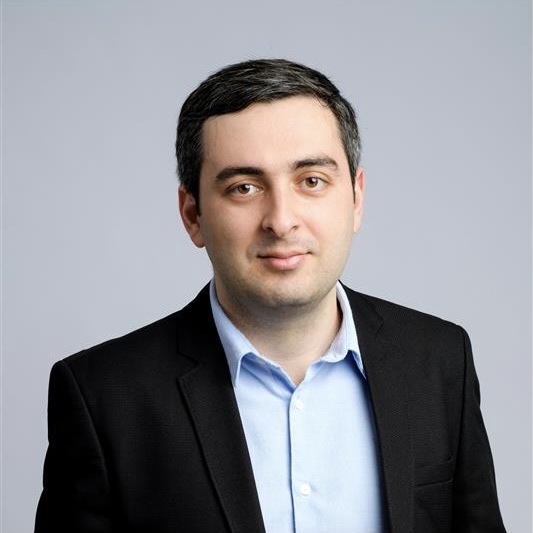
Participating in the ReThink.CEE Fellowship has been an exceptionally valuable experience. It allowed me to conduct research on a topic I was passionate about and helped me refine my writing skills so that the final product was not only authoritative but also delivered its message in a clear and plain manner. The fieldwork I was able to carry out as part of the fellowship allowed me to build connections with experts in my area of interest. The fellowship even earned me some citations and played a significant role in my being accepted in a PhD program.
The GMF staff provided support throughout the year—and always in abundance. Getting to know the other ReThink.CEE fellows, with their diverse backgrounds and research interests, made the experience even more valuable.
In short, with the ReThink.CEE Fellowship, all you do is gain. I hope that it continues to provide opportunities for young researchers from Central and Eastern Europe.
Andrei Yeliseyeu (Belarus, 2018)
Research Director, EAST Center
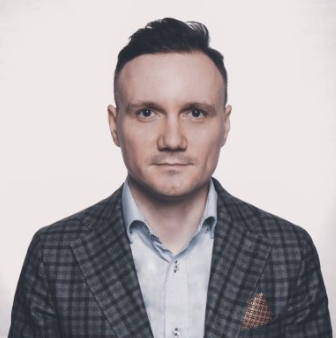
I had the honor to take part in the first edition of the ReThink.CEE fellowship back in 2018. I enjoyed the flexibility and analytical assistance from GMF-affiliated scholars that the program offered to its fellows. My topic back then was related to the Eurasian Economic Union, and thanks to the fellowship, I could carry out expert interviews with policymakers, academics, and analysts in each of the five EAEU countries. The ReThink.CEE fellowship is a particularly useful investment of time for researchers who are planning to continue their career in the think tank sector.
Anna Wójcik (Poland, 2021)
Humboldt Post-doctoral Fellow, Max Planck Institute for Comparative Public Law and International Law, Heidelberg
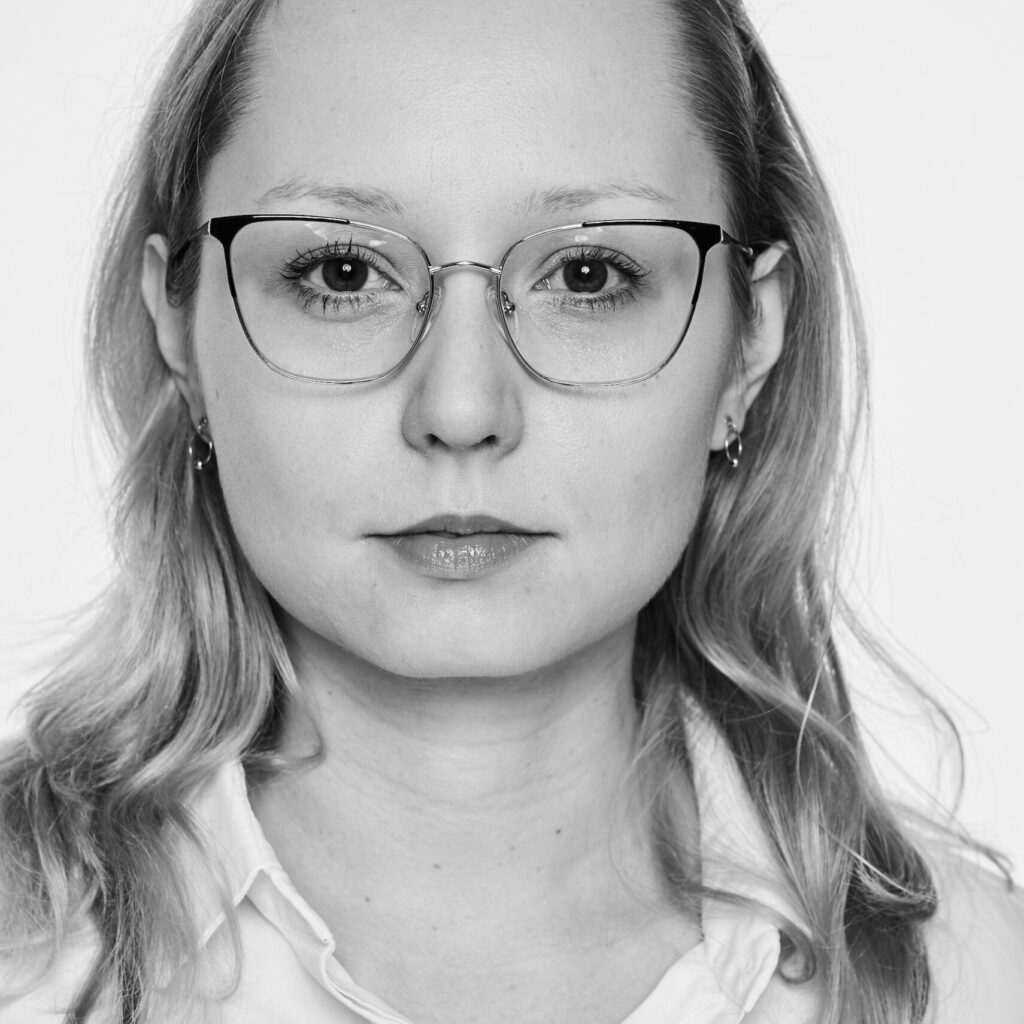
Being part of an amazing cohort of rising policy experts from the region, having the opportunity to conduct my own research project, and getting feedback from colleagues from Europe and the United States have greatly enriched my perspective and broadened my horizons. I warmly recommend this opportunity for everyone!
Edit Zgut-Przybylska (Hungary, 2020)
Assistant Professor, Institute of Philosophy and Sociology at the Polish Academy of Sciences, Poland
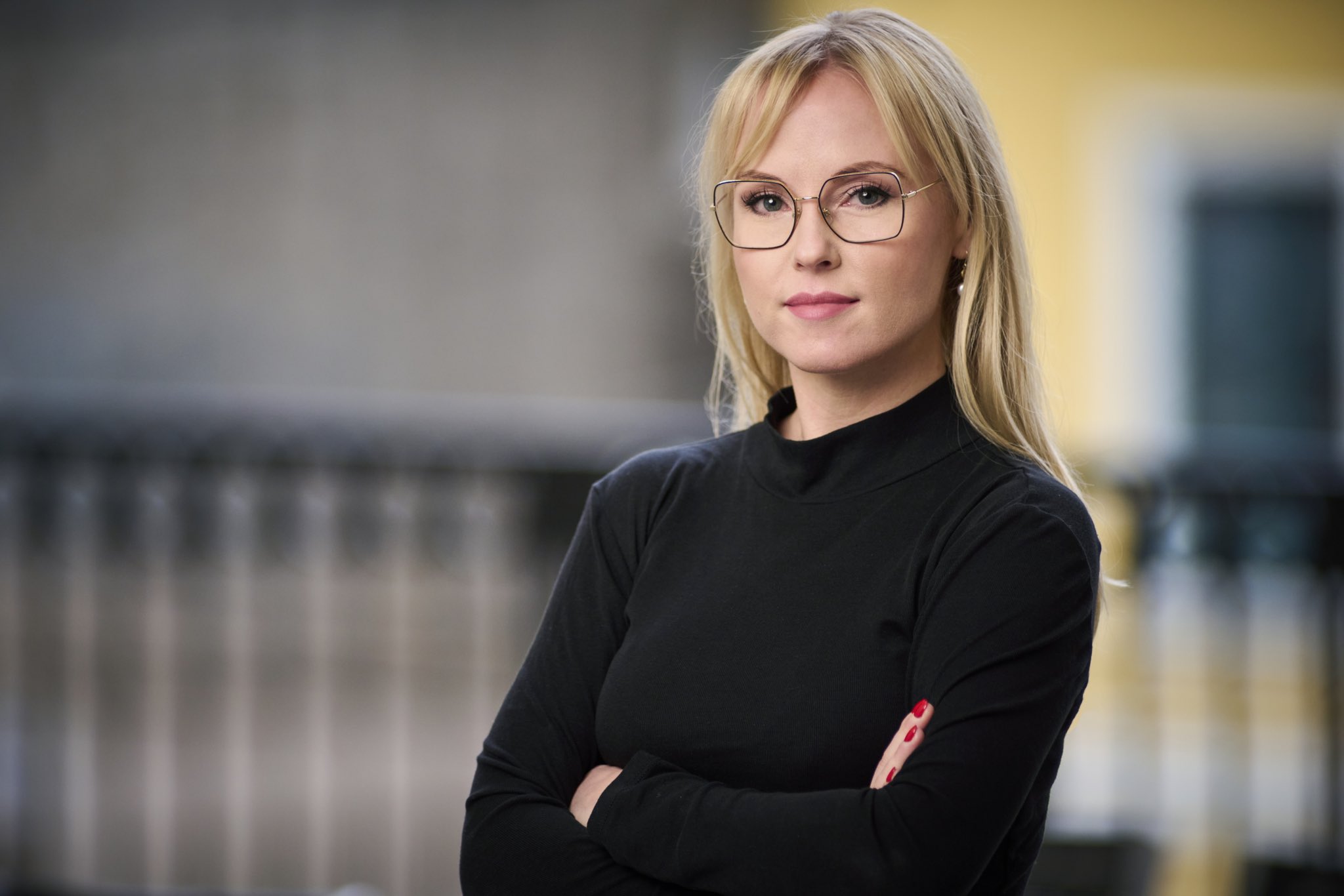
The Rethink.CEE program has been a transformative experience for me. It was essential for my policy analysis and my PhD research. The idea was to conduct interviews for my project on informal power in Hungary and Poland, and although I could hardly travel due to COVID-19 lockdown, the fellowship helped a great deal to maximize outreach. I wrote a comparative policy paper that eventually underpinned the empirical backbone of my PhD thesis. GMF brings together an exceptional community of policy experts across disciplines and regions. Discussing my project with these fellows while being guided by the GMF team helped a great deal to strengthen my voice in the transatlantic policy community. We could not meet physically but our online meetings were always truly engaging. I got inspired by my colleagues, with whom I am collaborating to this day. My gratitude goes to GMF for making this happen.


